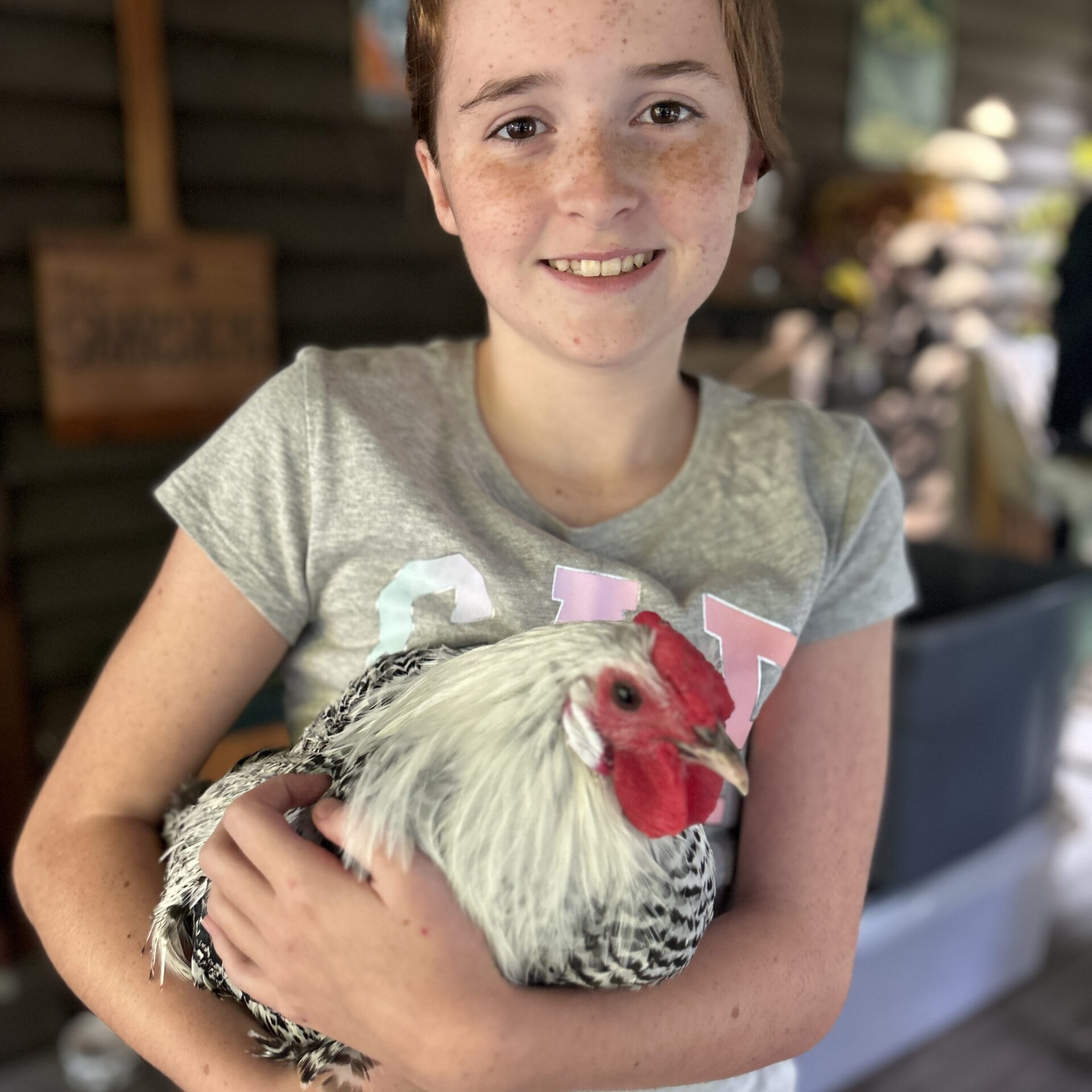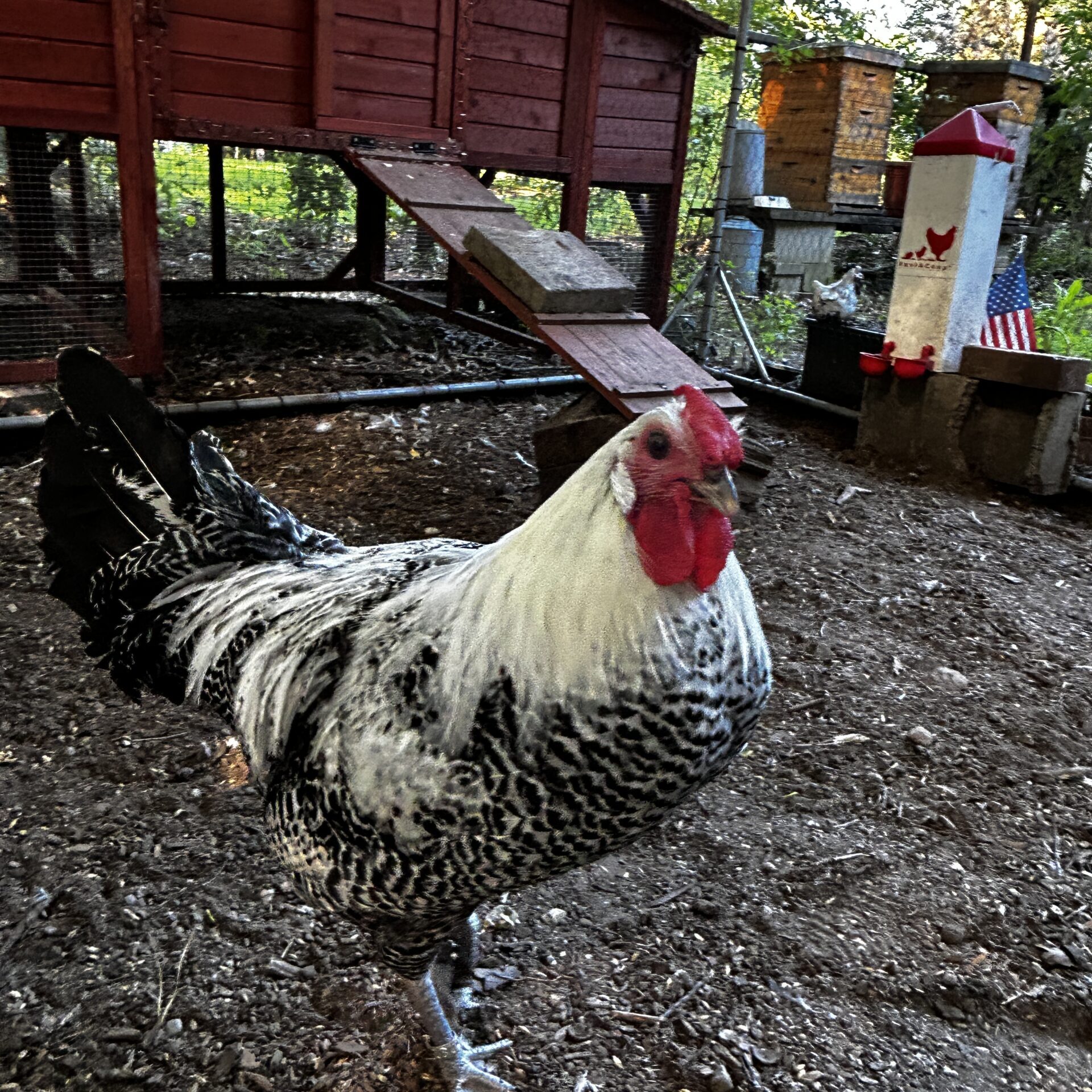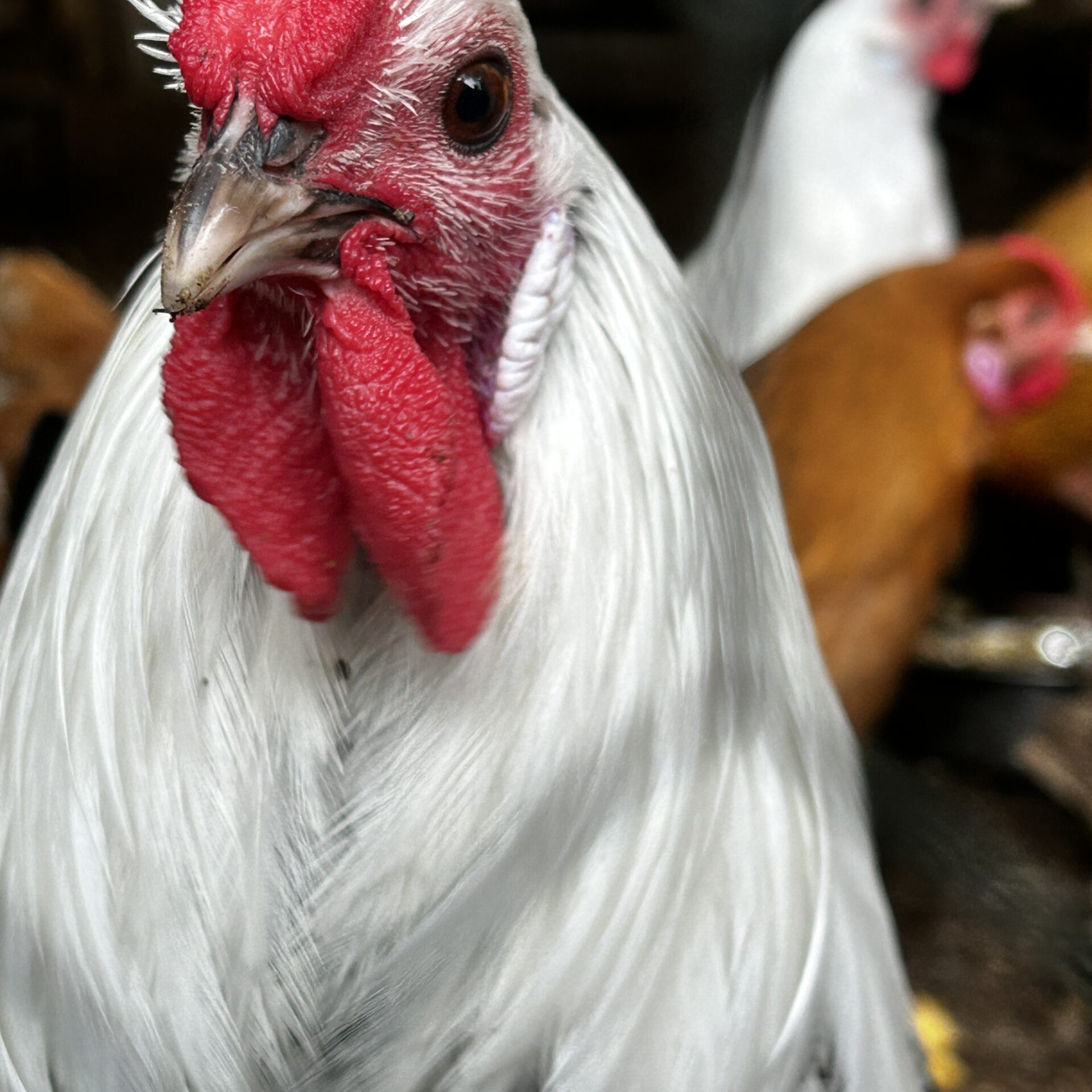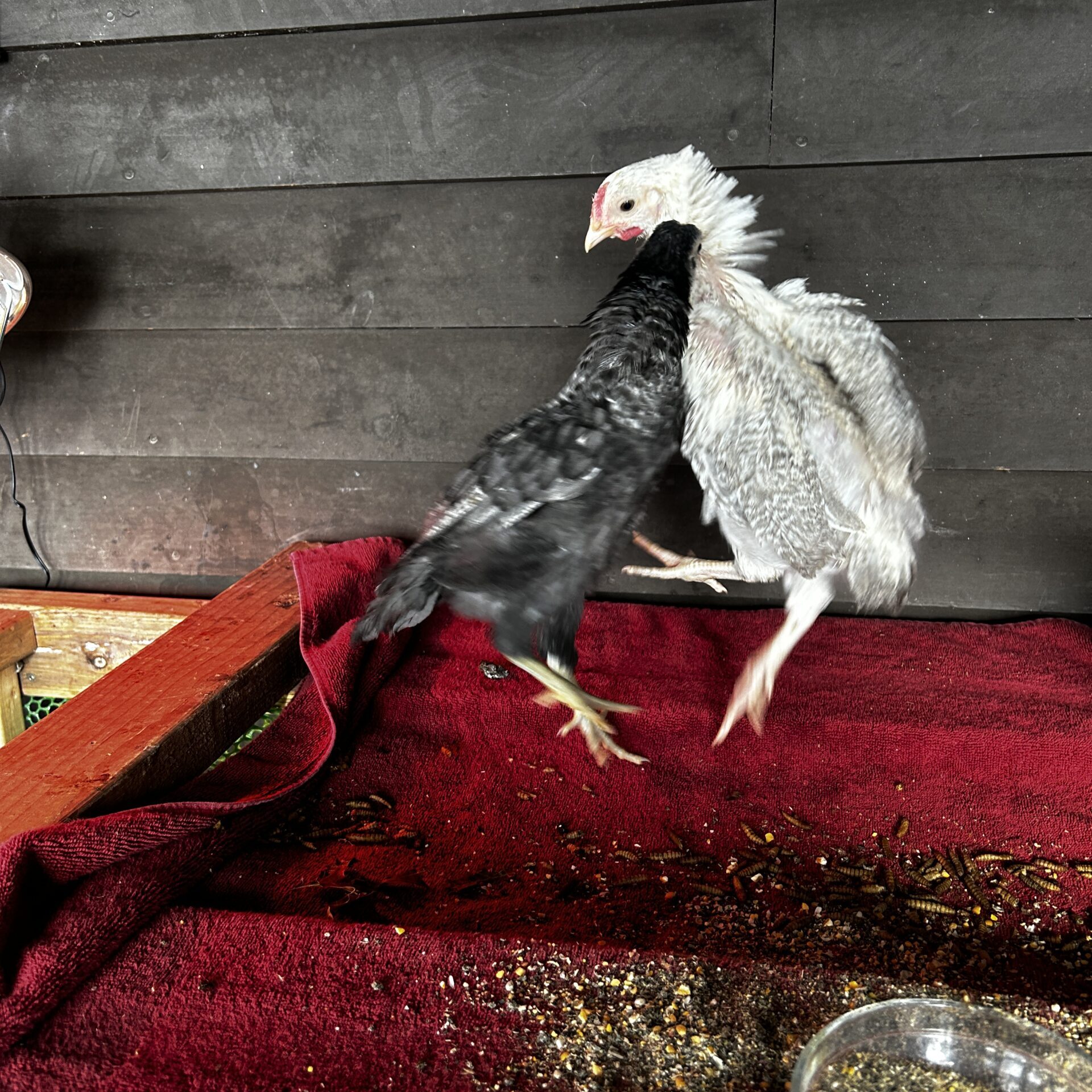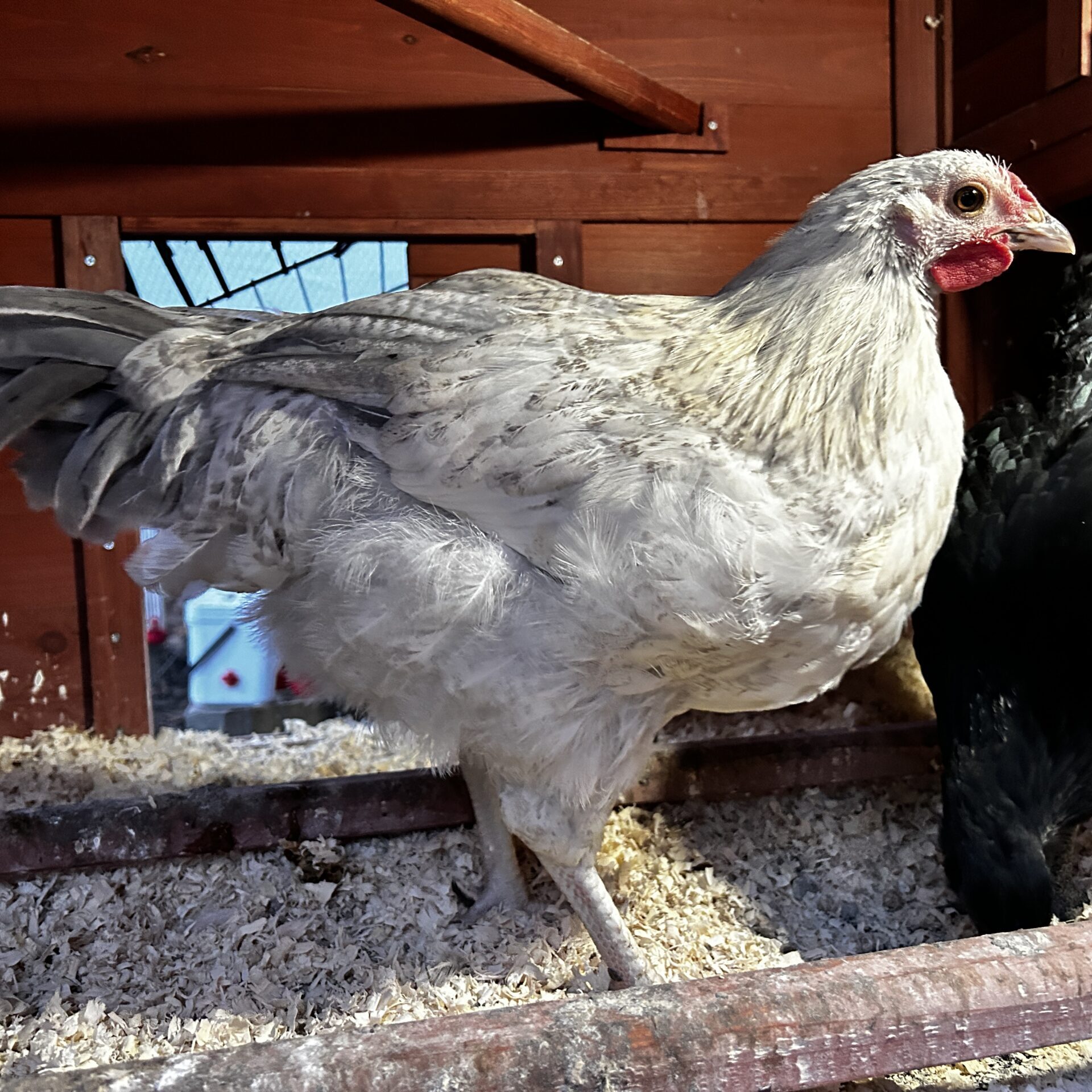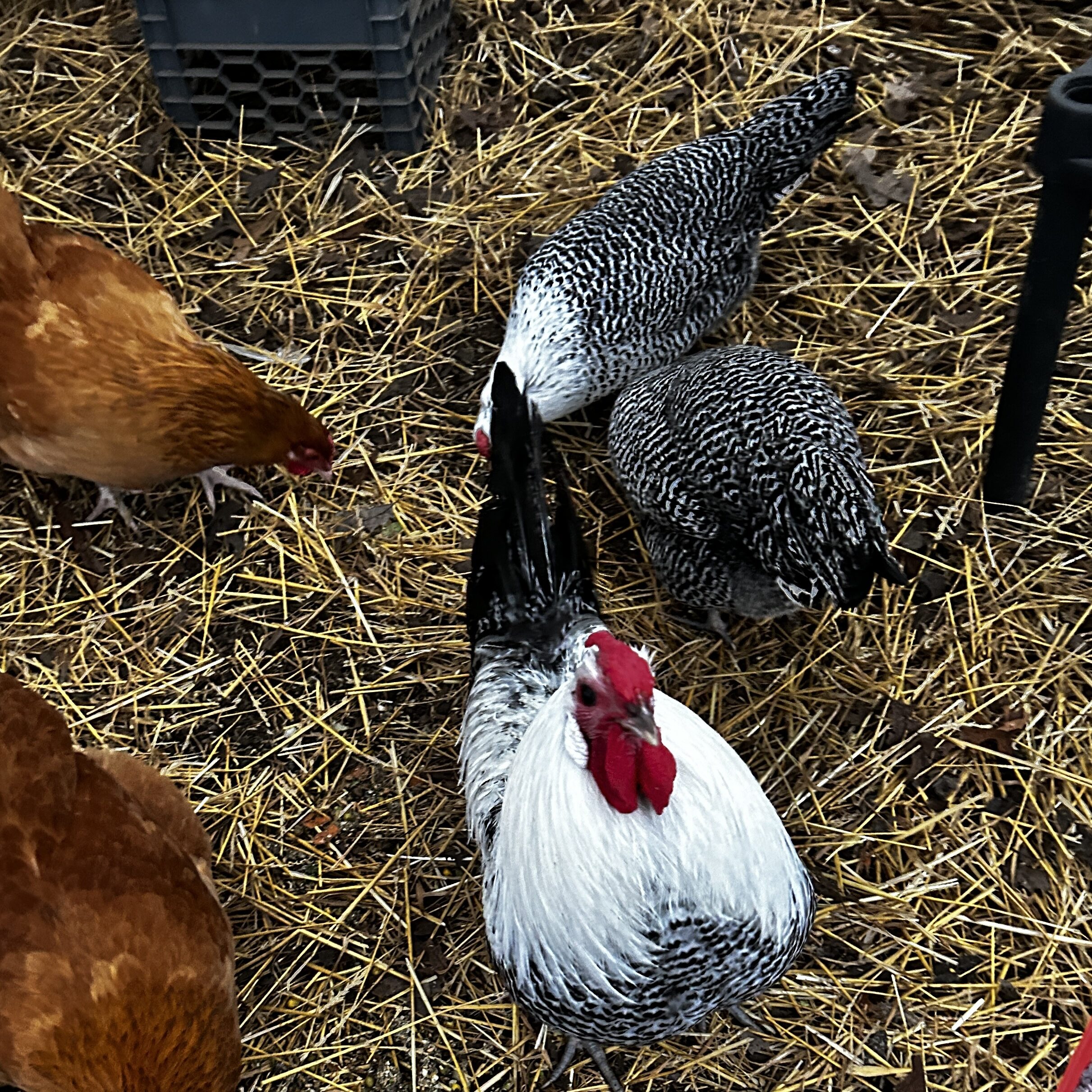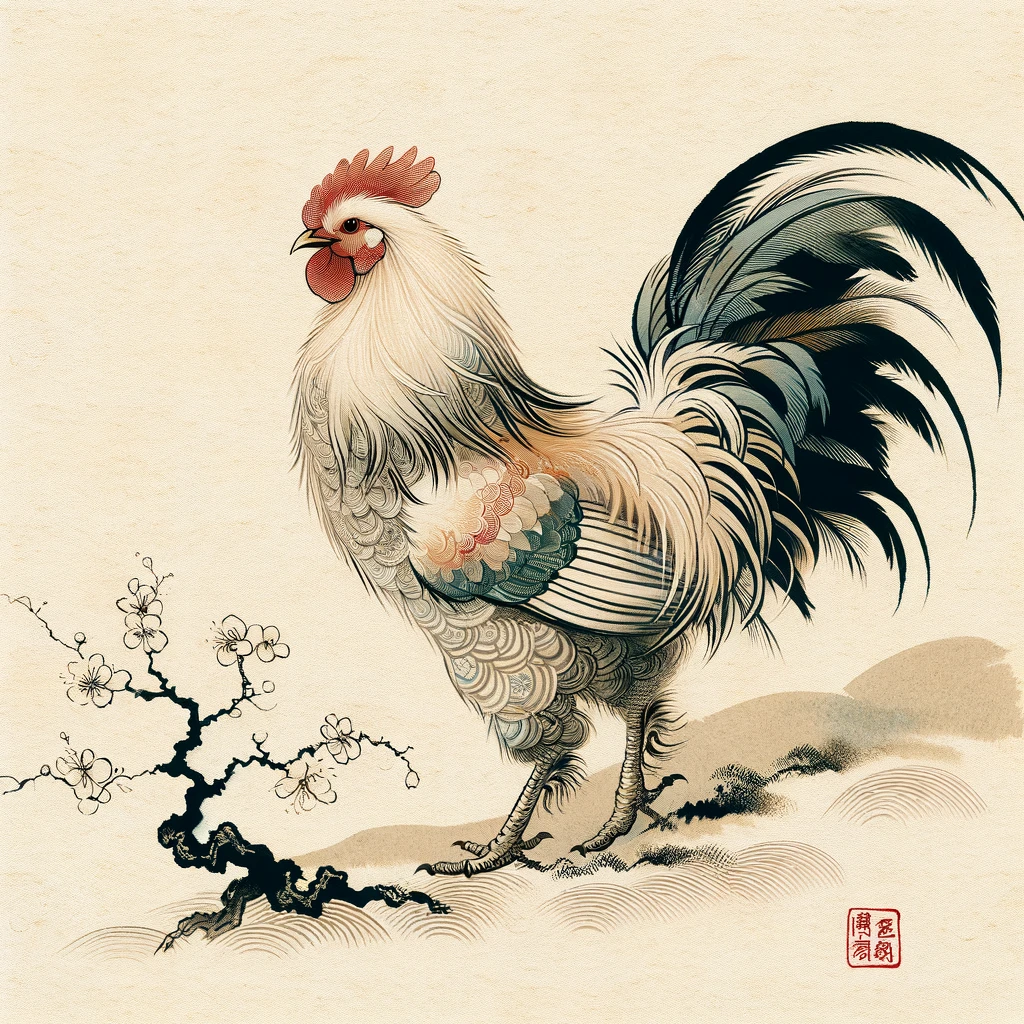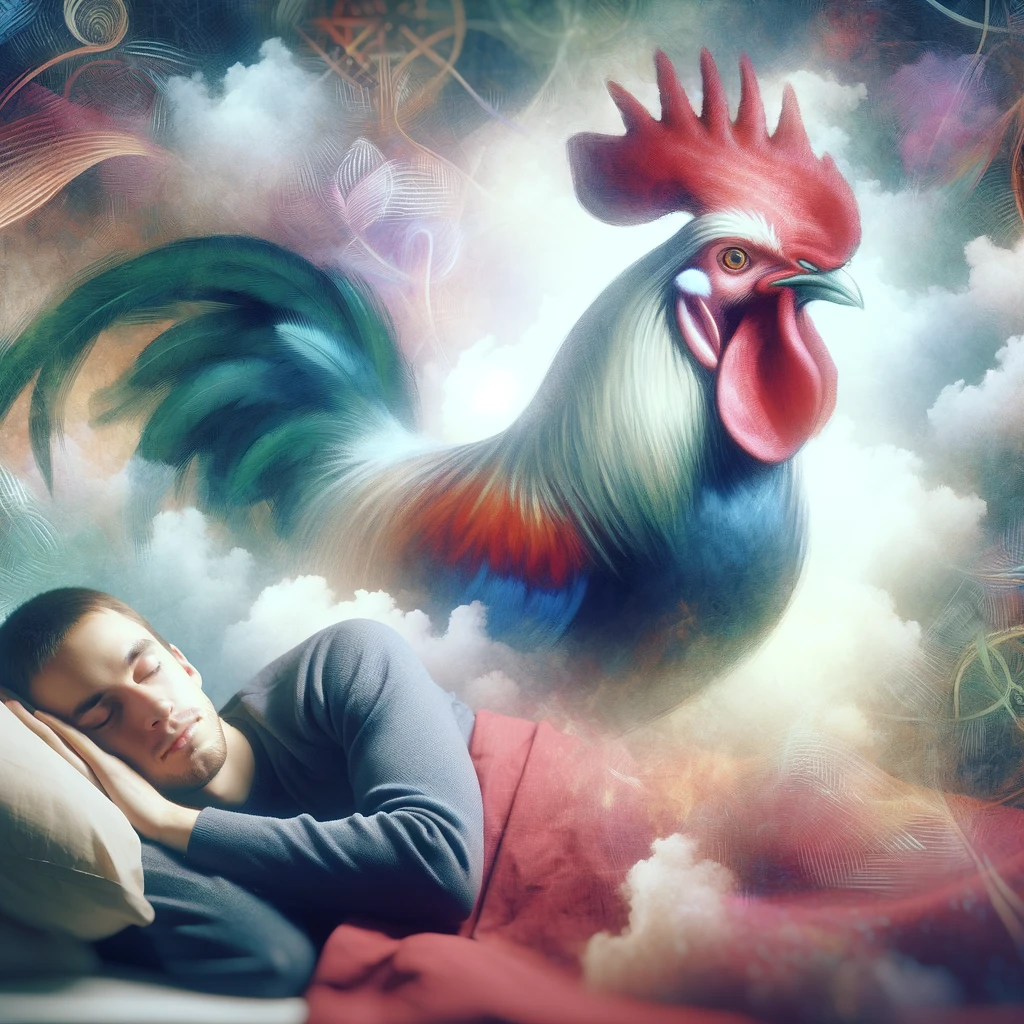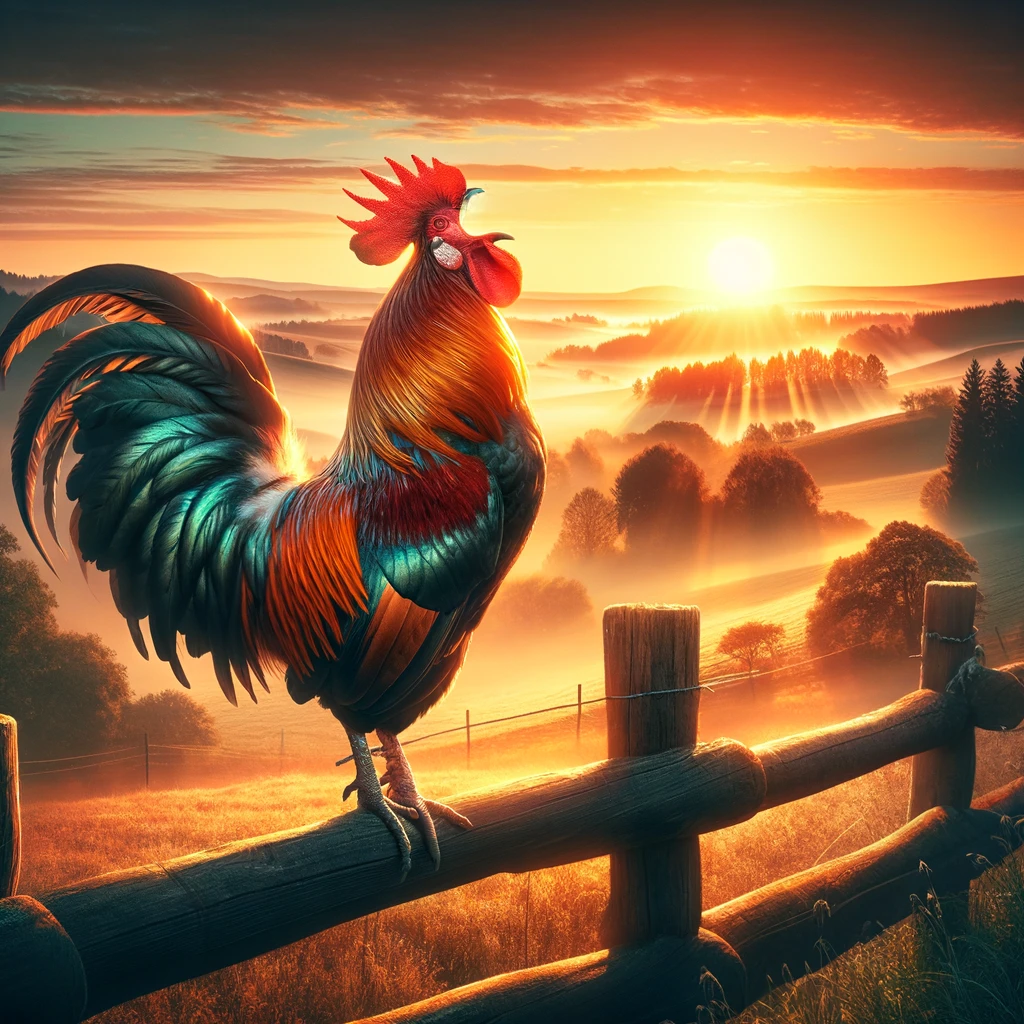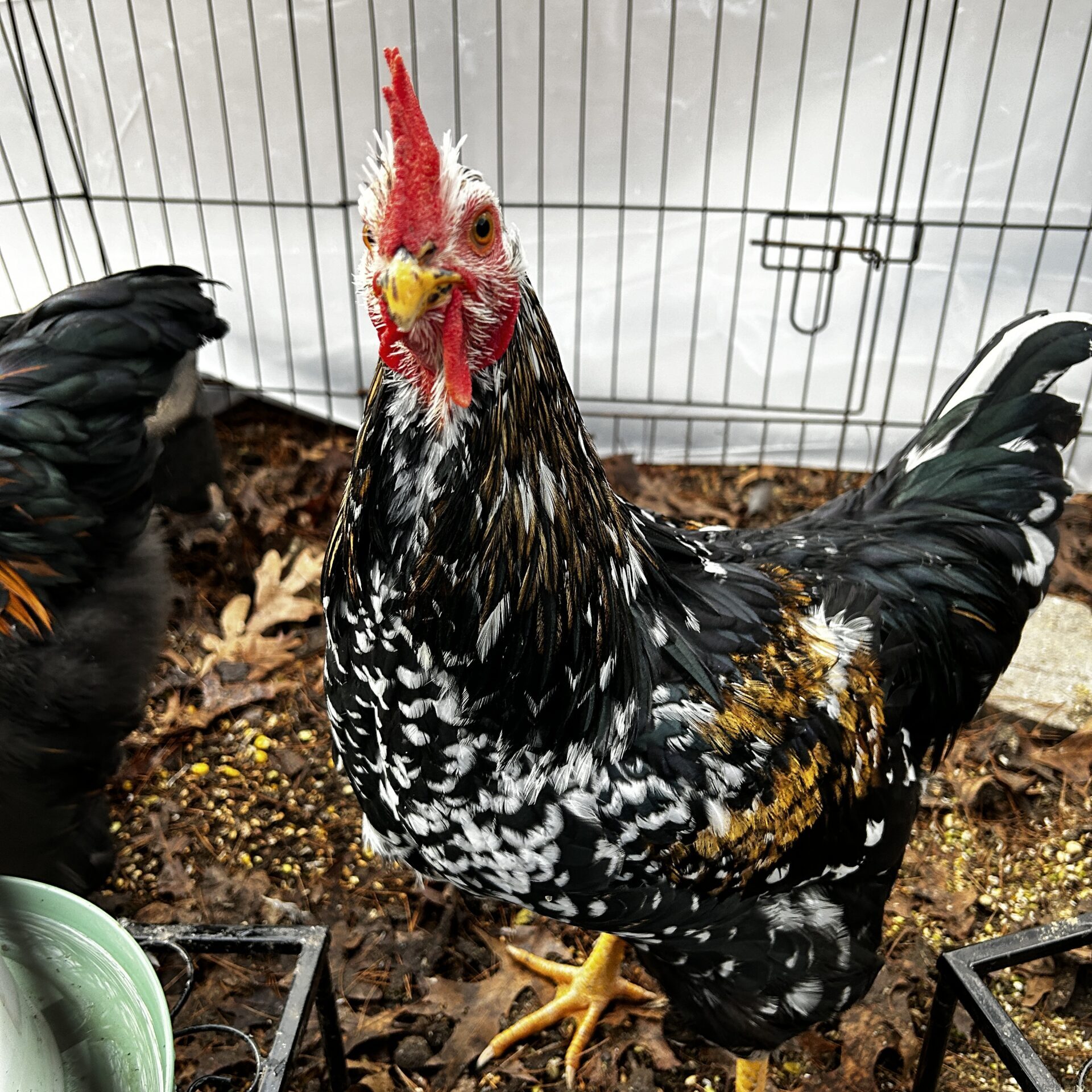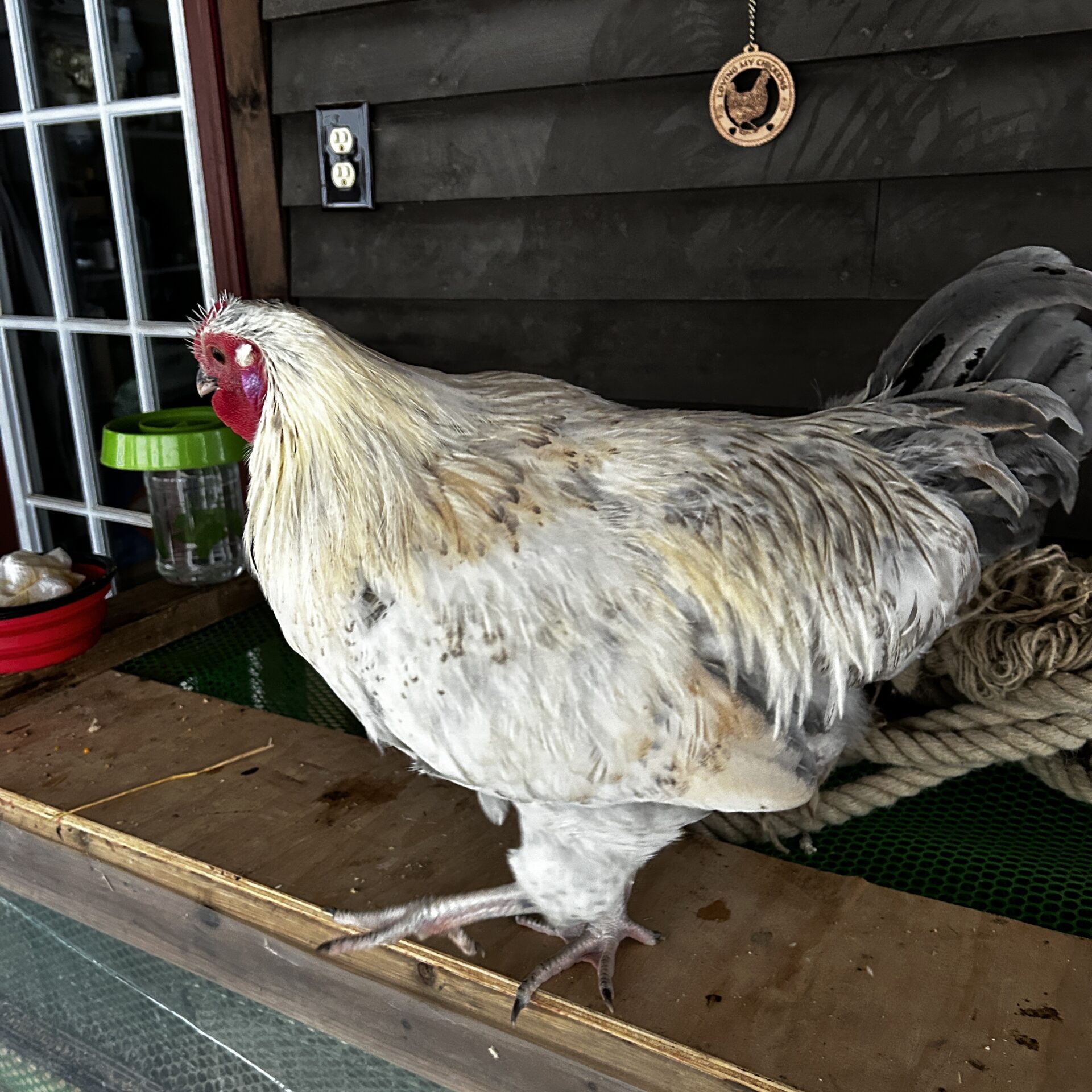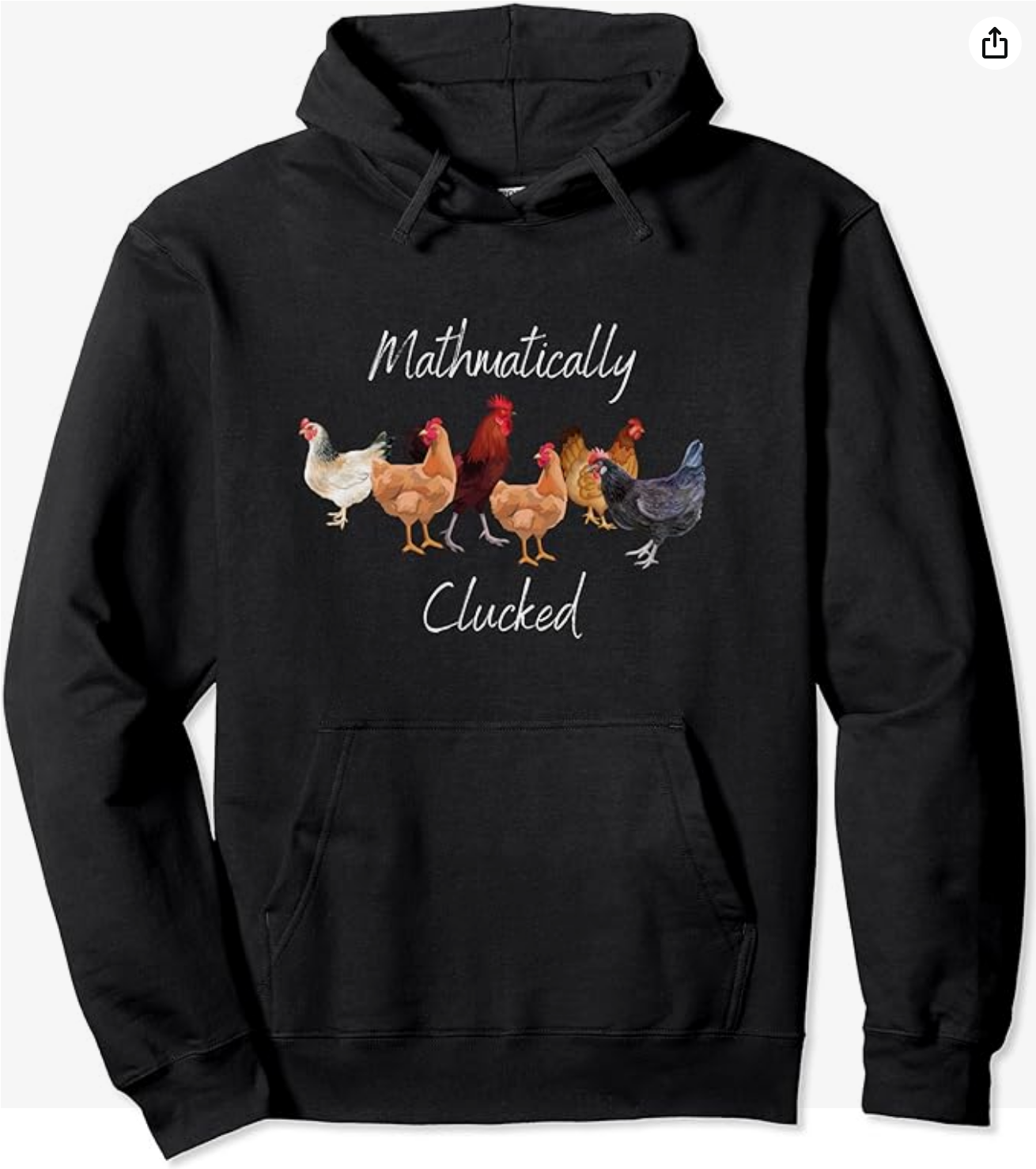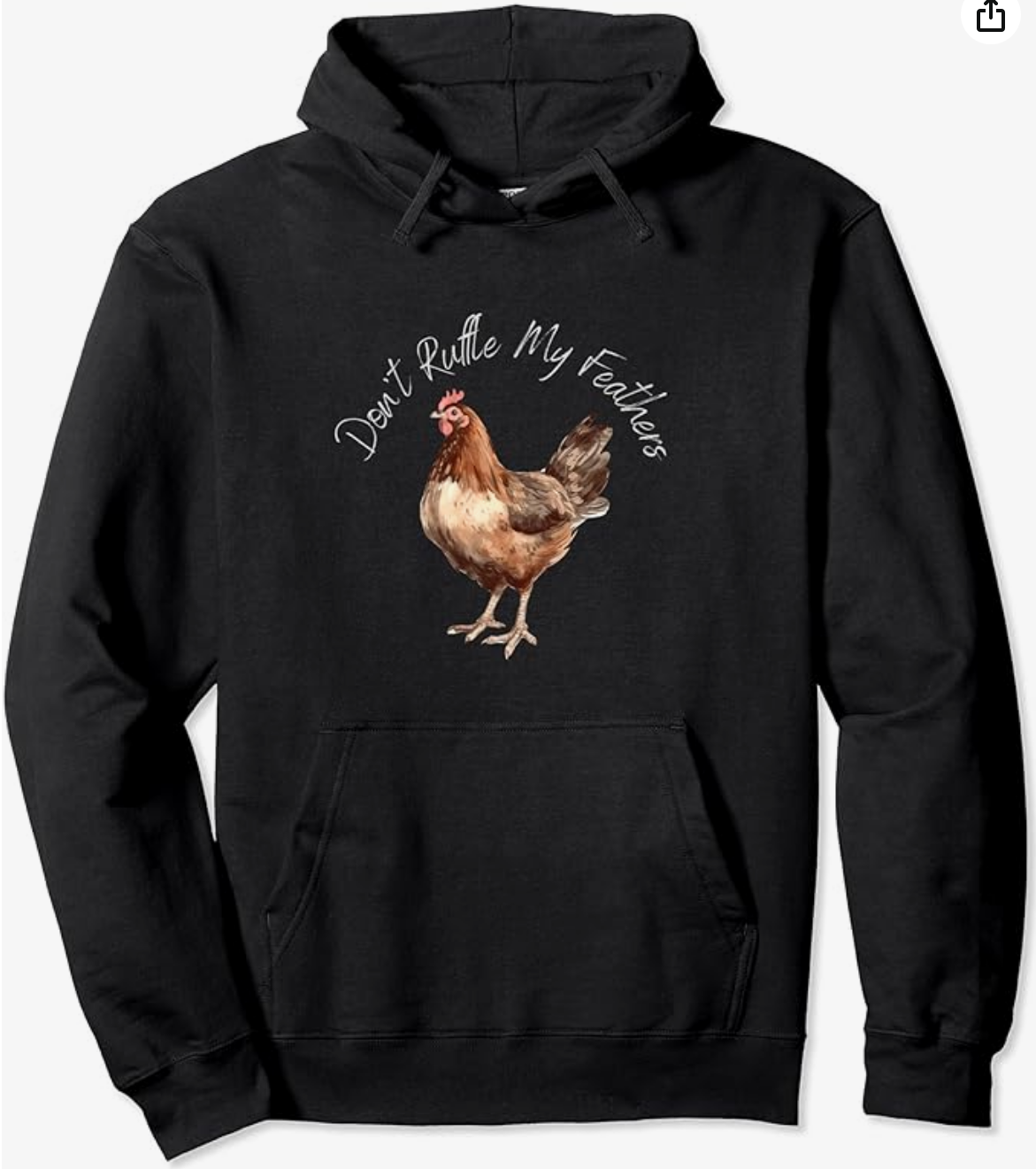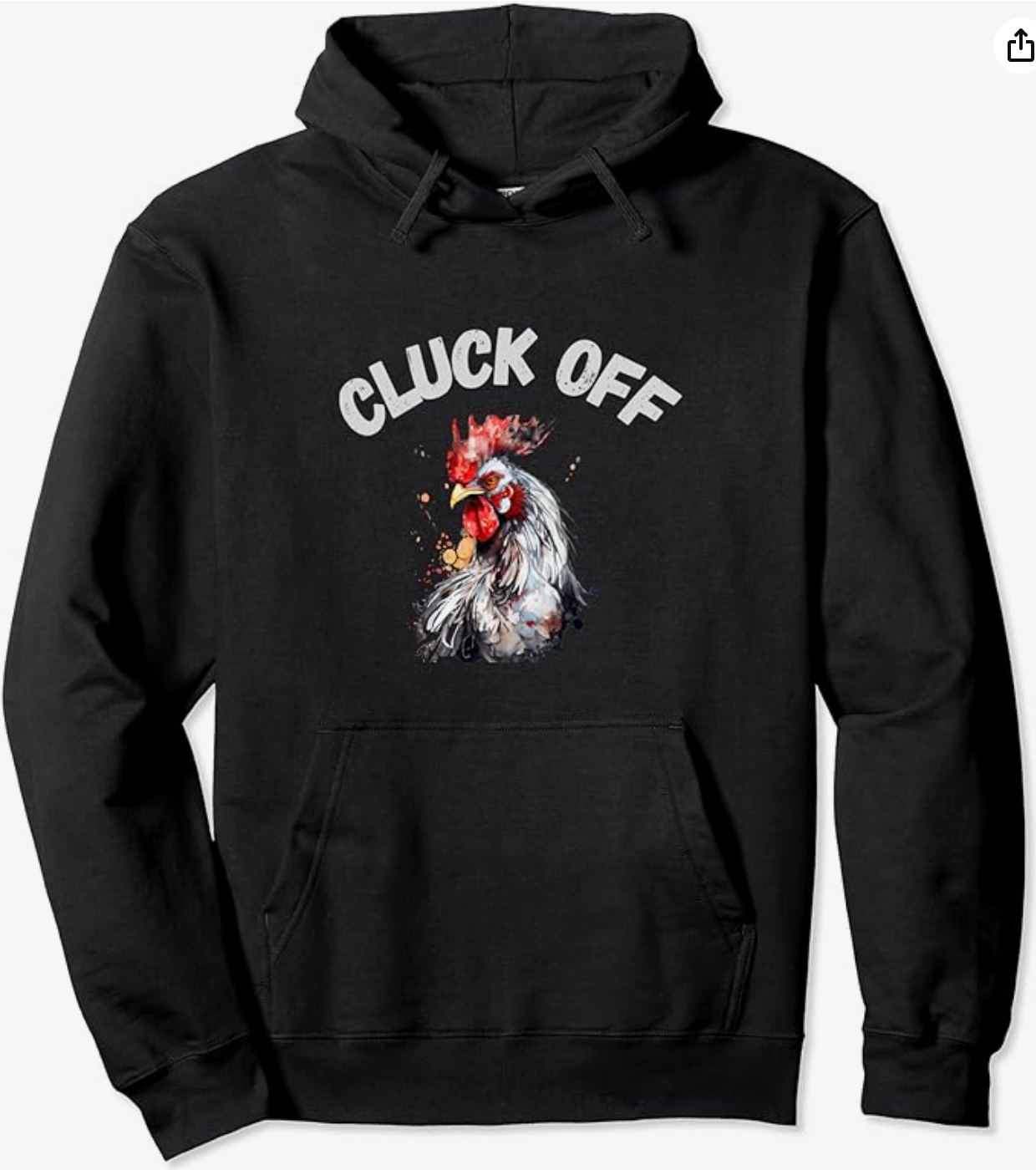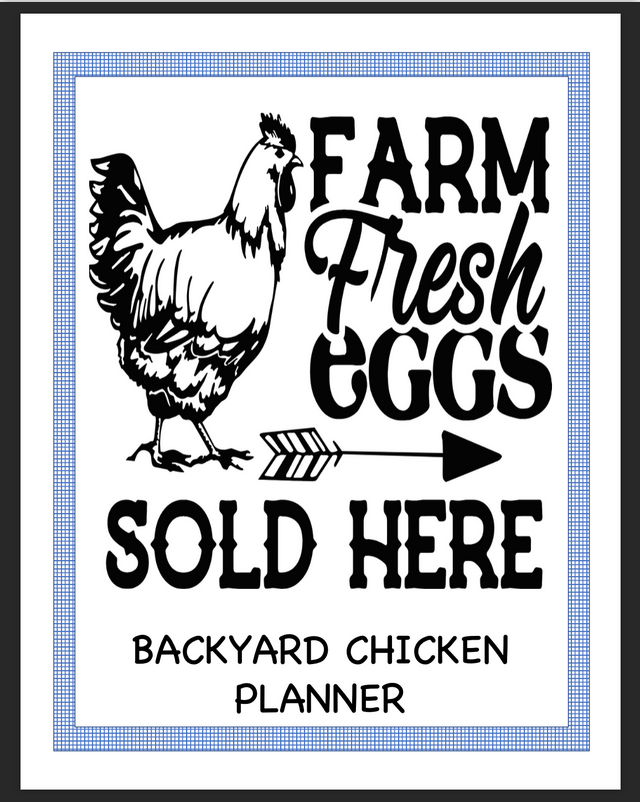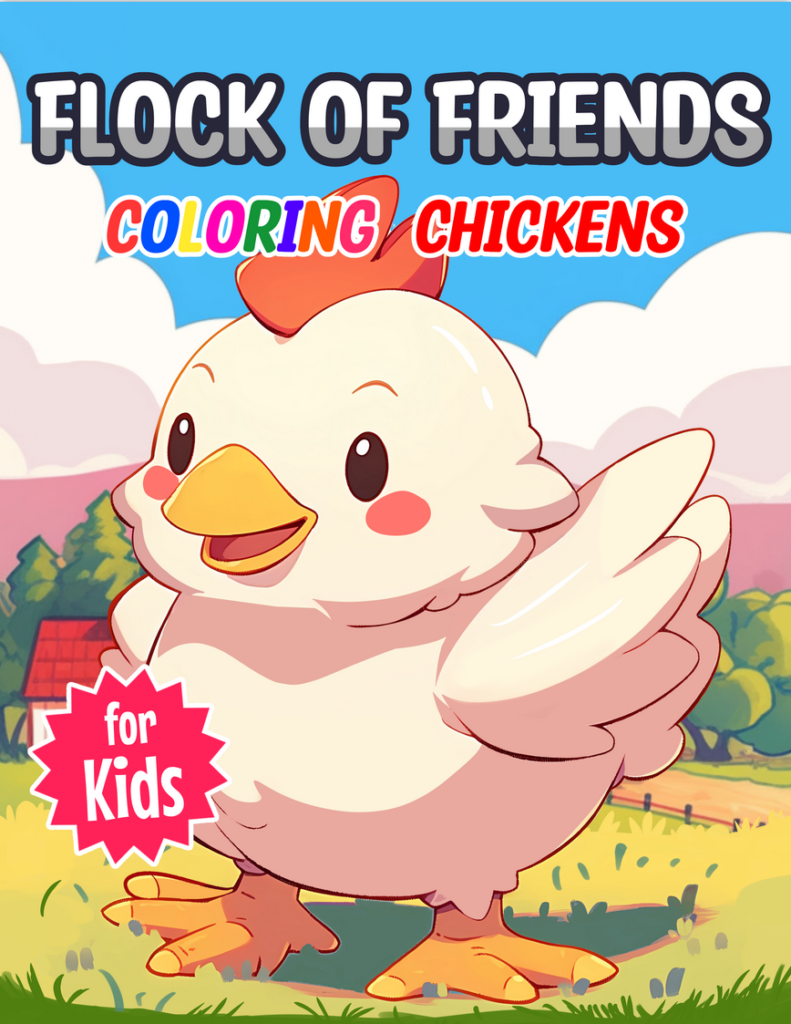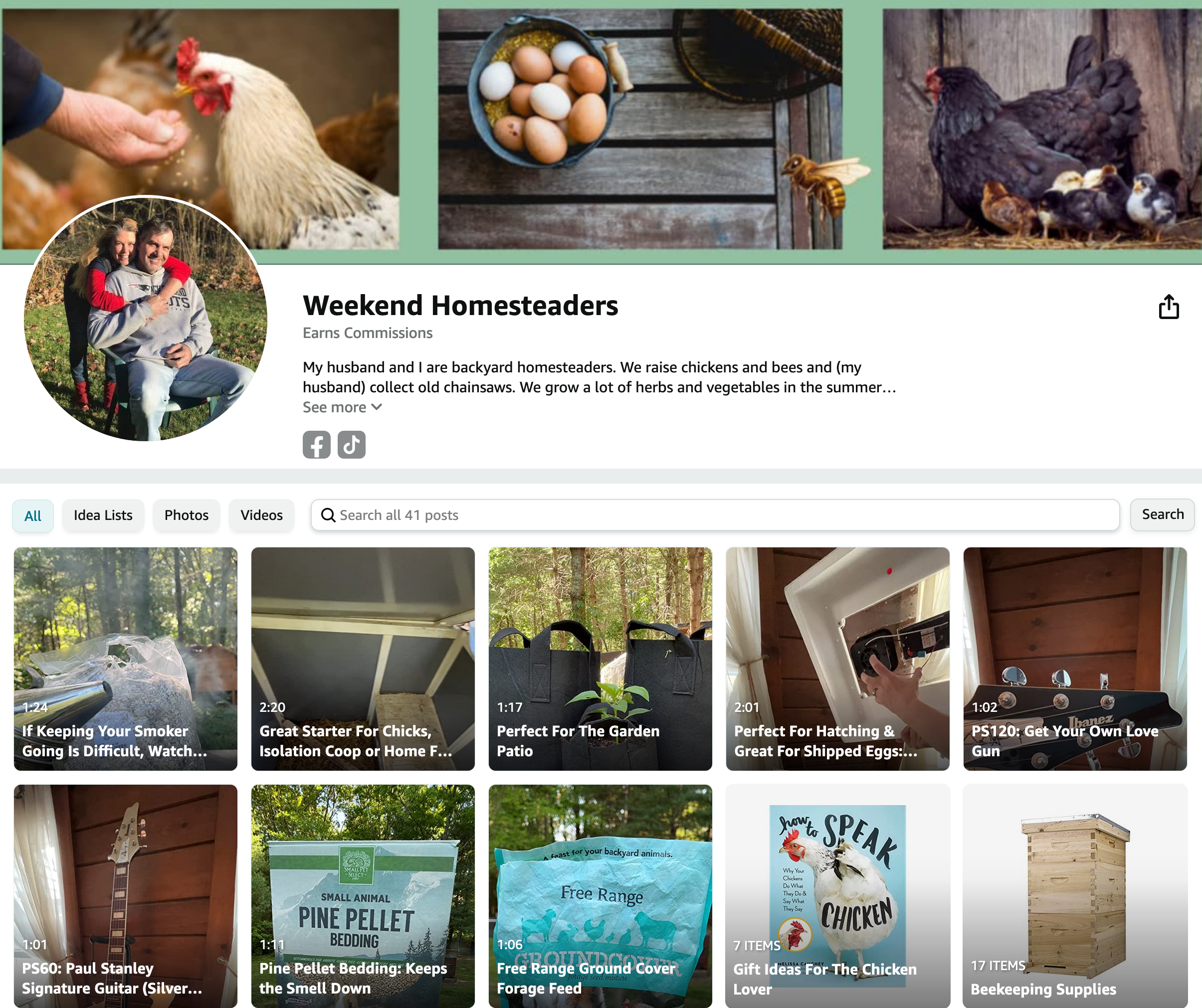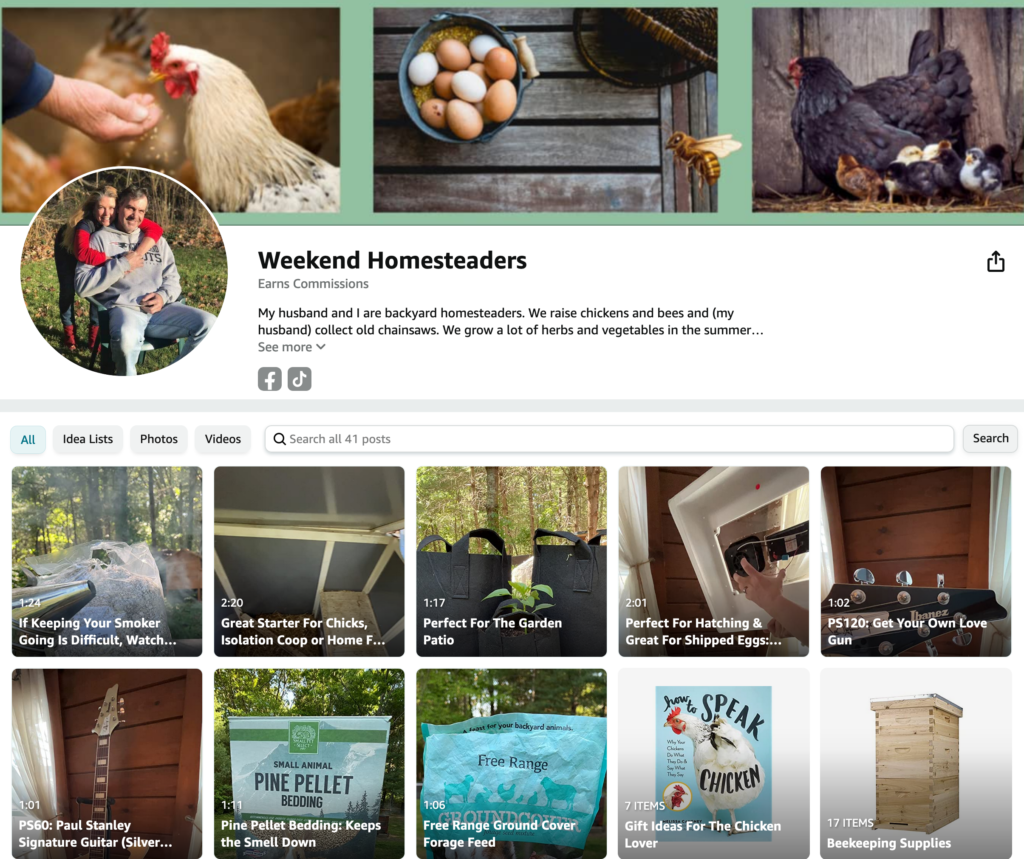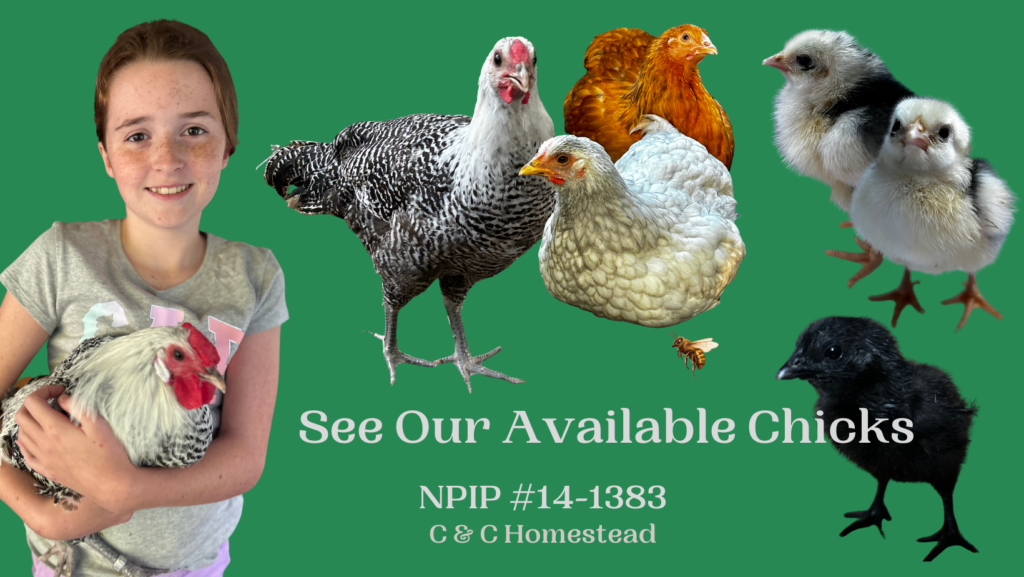Balancing Corporate & Homesteading Lifestyles
Coop Winter Weatherproofing Tips
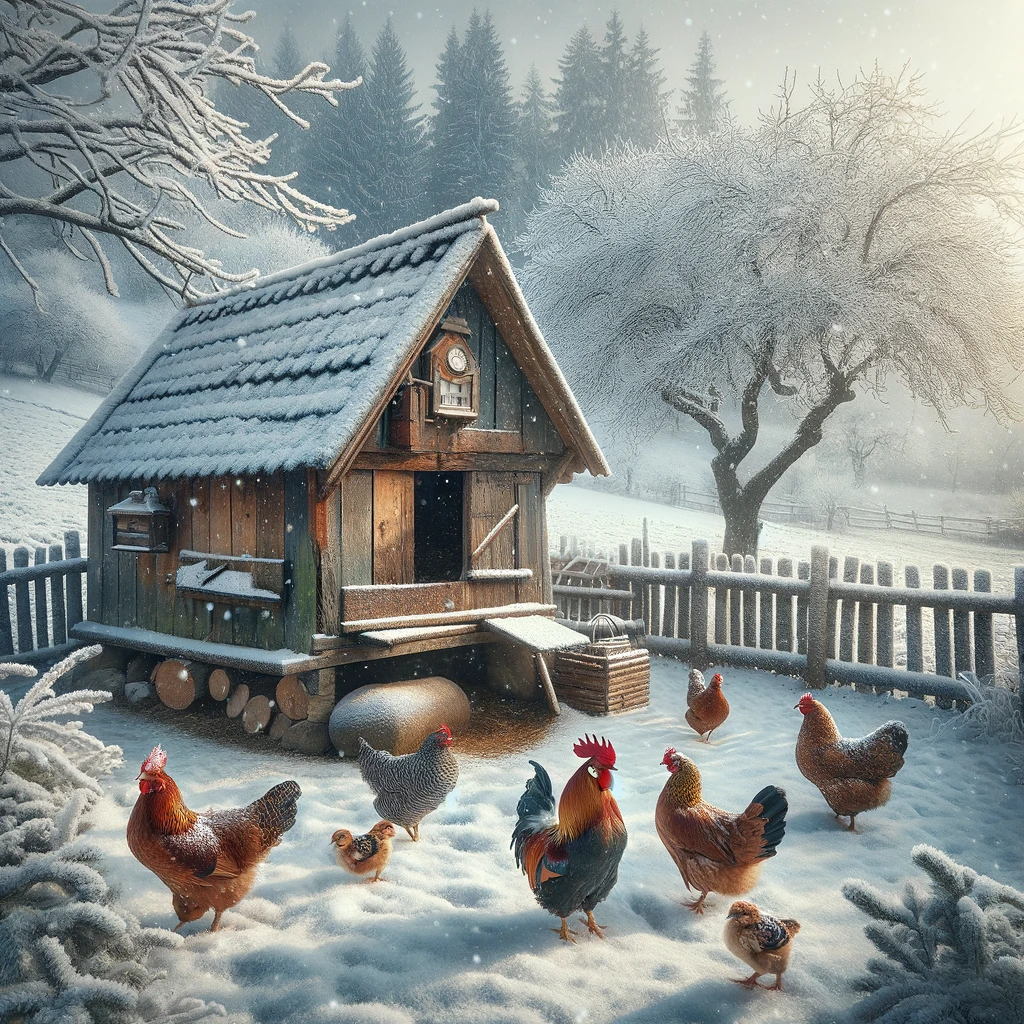
Weatherproofing your chicken coop is crucial for several reasons.
Firstly, it ensures the health and comfort of your chickens. Exposure to extreme temperatures, be it scorching summer heat or freezing winter cold, can lead to stress, reduced egg production, and even health issues like frostbite or heatstroke. Additionally, weatherproofing keeps out moisture, which is vital as damp conditions can lead to mold growth and respiratory problems in chickens. It also protects against pests and predators that can exploit vulnerabilities in a coop’s structure. Finally, weatherproofing extends the life of your coop, safeguarding your investment and ensuring a safe, comfortable home for your chickens for years to come. In essence, a well-maintained and weatherproofed coop is fundamental to responsible and efficient chicken keeping at C&C Homestead.
- Weatherproof the Coop:
- Goal: Keep the coop warm without making it airtight, as ventilation is crucial.
- How-To: Add extra layers of straw or wood shavings on the floor for insulation.
- Bonus Tip: Avoid using heaters as they pose a fire risk; instead, rely on the chickens' natural ability to keep warm by huddling together.
- Prevent Water from Freezing:
- Goal: Ensure a constant supply of liquid water.
- How-To: Use a heated water dish or a water heater base under your regular water container. Alternatively, change the water multiple times a day to keep it from freezing.
- Reminder: Check the water frequently as chickens need more water in the winter to maintain body heat.
- Boost Their Diet:
- Goal: Provide extra calories and nutrition to help them stay warm.
- How-To: Add grains like corn or wheat to their diet in the evenings. These grains take longer to digest, producing more body heat overnight.
- Caution: Balance is key; don't overdo it with grains as they can lead to obesity.
- Provide Winter Entertainment:
- Goal: Keep chickens active and prevent boredom, which can lead to pecking and other issues.
- Ideas: Hang a cabbage or other treat just out of reach so they have to jump for it, or add a dust bath area inside the coop.
- Why: Mental stimulation is as important as physical health, especially when they're spending more time inside.
- Check for Frostbite:
- Goal: Prevent and treat frostbite, especially on combs and wattles.
- How-To: Apply a thin layer of petroleum jelly on combs and wattles to provide some protection. Regularly check for signs of frostbite, which include pale, discolored, or blackened areas.
- Action: If you suspect frostbite, bring the chicken to a warmer area and consult a veterinarian for treatment advice.
Remember, each flock and environment is unique, so adjust these tips as needed for your specific situation. Keeping a watchful eye and taking proactive steps can make a world of difference in ensuring your chickens' well-being during the winter months.
The Protective Instinct Of Roosters
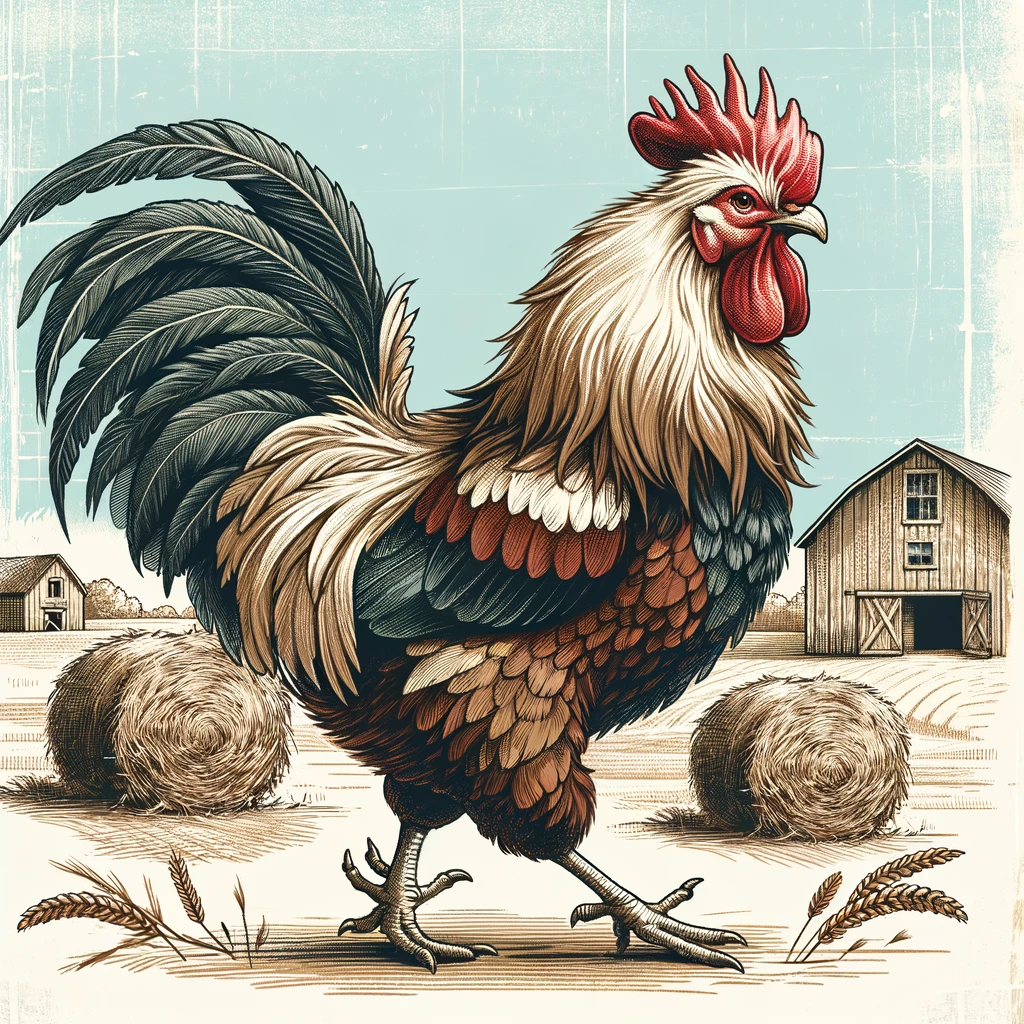
Roosters possess a strong and innate protective instinct, which plays a crucial role in the dynamics of a chicken flock. This instinct is a fascinating aspect of their behavior and has several key elements:
- Guardian of the Flock: Roosters are naturally inclined to act as guardians. They are always alert, often taking a high vantage point to watch for potential threats. They will sound a distinct alarm call to warn the hens of danger, whether it's a predator or an unfamiliar presence.
- Defense Against Predators: When a threat is detected, a rooster will not hesitate to confront it, sometimes engaging in combat to protect the flock. This bravery can be awe-inspiring, as roosters will face off against much larger predators to keep their hens safe.
- Maintaining Social Order: Part of a rooster's protective role involves maintaining social order within the flock. They often break up fights among hens and ensure that all members of the flock get a chance to eat and drink. This pecking order maintenance helps keep peace and stability.
- Leading and Guiding the Flock: Roosters often lead the hens to food and water, sometimes even calling them over when they find a good source. They will also shepherd the flock back to the coop at dusk or when they perceive danger.
- Aggression as Protection: It's important to understand that a rooster's aggressive behavior, especially towards humans, often stems from this protective instinct. They may view humans as potential threats to their flock, especially during the breeding season.
- Breeding Season Behavior: During the breeding season, a rooster's protective instincts are heightened. They become more vigilant and may exhibit increased aggression to protect their hens from perceived threats.
Understanding and respecting a rooster's protective instincts are key to managing them effectively. This doesn't mean tolerating aggressive behavior towards humans, but rather recognizing the root of these behaviors and responding appropriately, such as by establishing boundaries and using non-threatening body language. By doing so, you can maintain a healthy and safe environment for both the rooster and the rest of the flock.
Dominance And Roosters
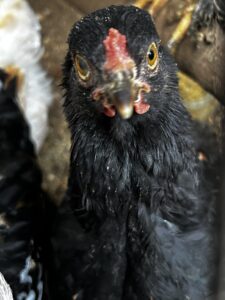
Here's why dominance doesn't work well with chickens:
- Stress and Aggression:
- Attempting to establish dominance through force or aggressive behavior can stress chickens, leading to fear and anxiety within the flock.
- Aggressive actions may trigger defensive responses from chickens, potentially resulting in increased aggression among flock members.
- Hierarchy Establishment:
- Chickens naturally establish a pecking order within the flock, where each bird knows its place. This hierarchy is typically formed through subtle interactions and not through dominance-based methods.
- Trying to assert dominance disrupts the natural order and may lead to increased aggression and social instability.
- Trust Issues:
- Building trust with chickens is crucial for their well-being and effective management. Using dominance-based methods erodes trust and can make it challenging to handle or interact with the birds.
- Ineffective Communication:
- Chickens communicate through subtle body language and vocalizations. Trying to dominate them disrupts these natural communication channels, making it difficult for chickens to understand human cues.
- Long-Term Behavioral Issues:
- Dominance-based methods may result in long-term behavioral problems, such as increased fearfulness, reduced egg production, or even feather picking among flock members.
- Alternative Approaches:
- Positive reinforcement and rewards are more effective methods for training and managing chicken behavior. Chickens respond well to treats, praise, and consistent, gentle handling.
- Understanding and respecting the natural instincts of chickens, such as their pecking order and social structure, allows for a more harmonious and stress-free environment.
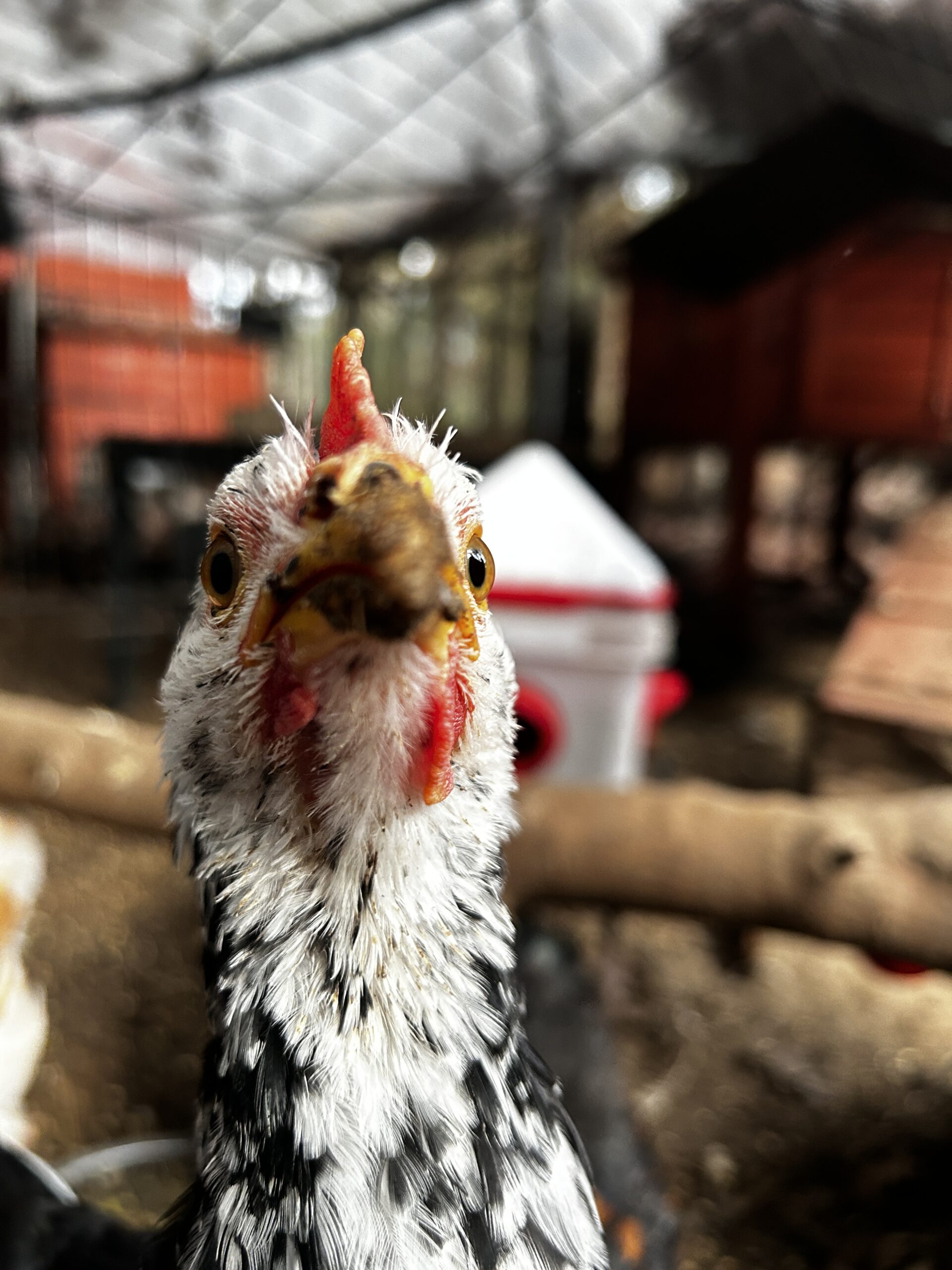
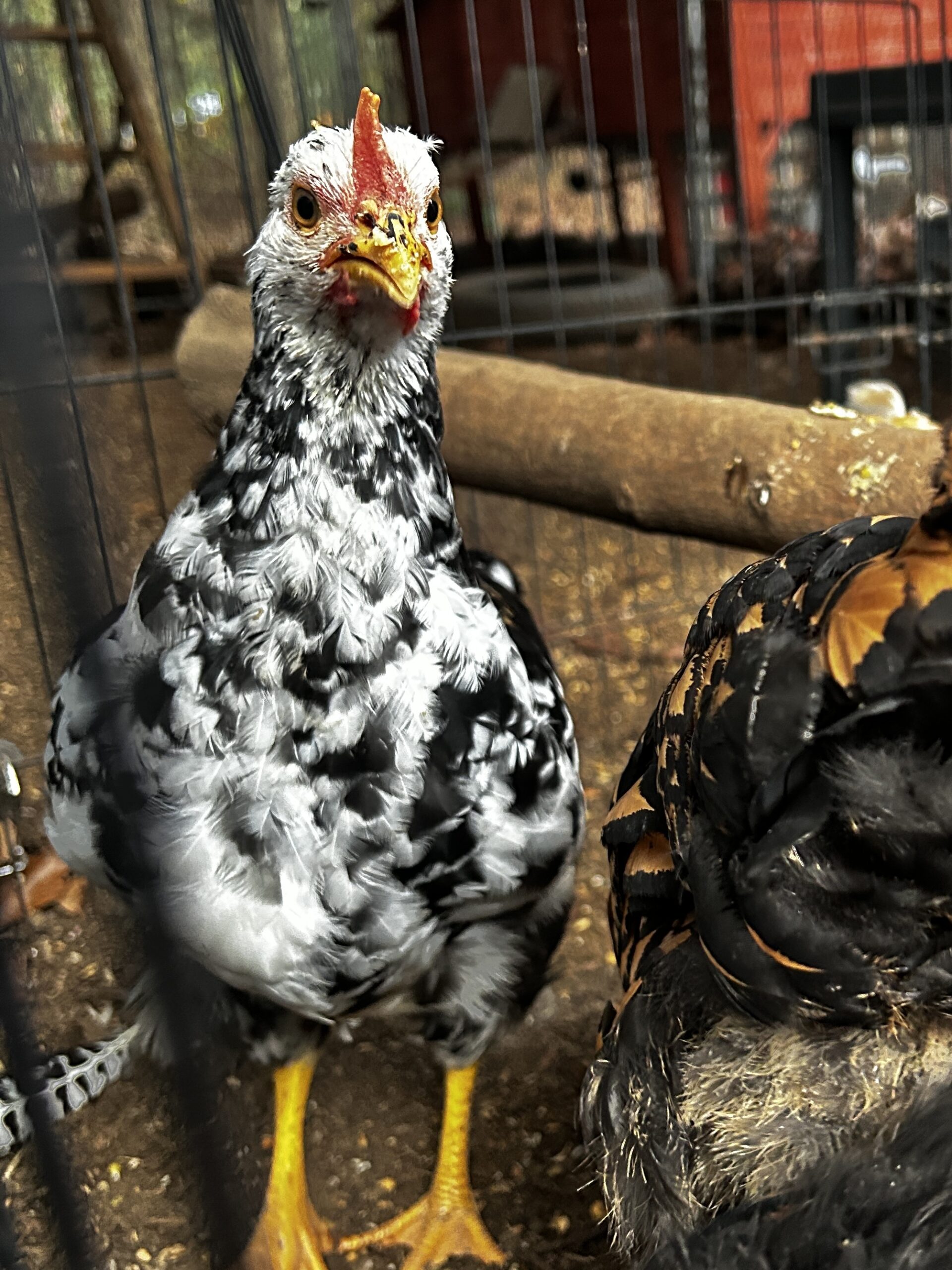
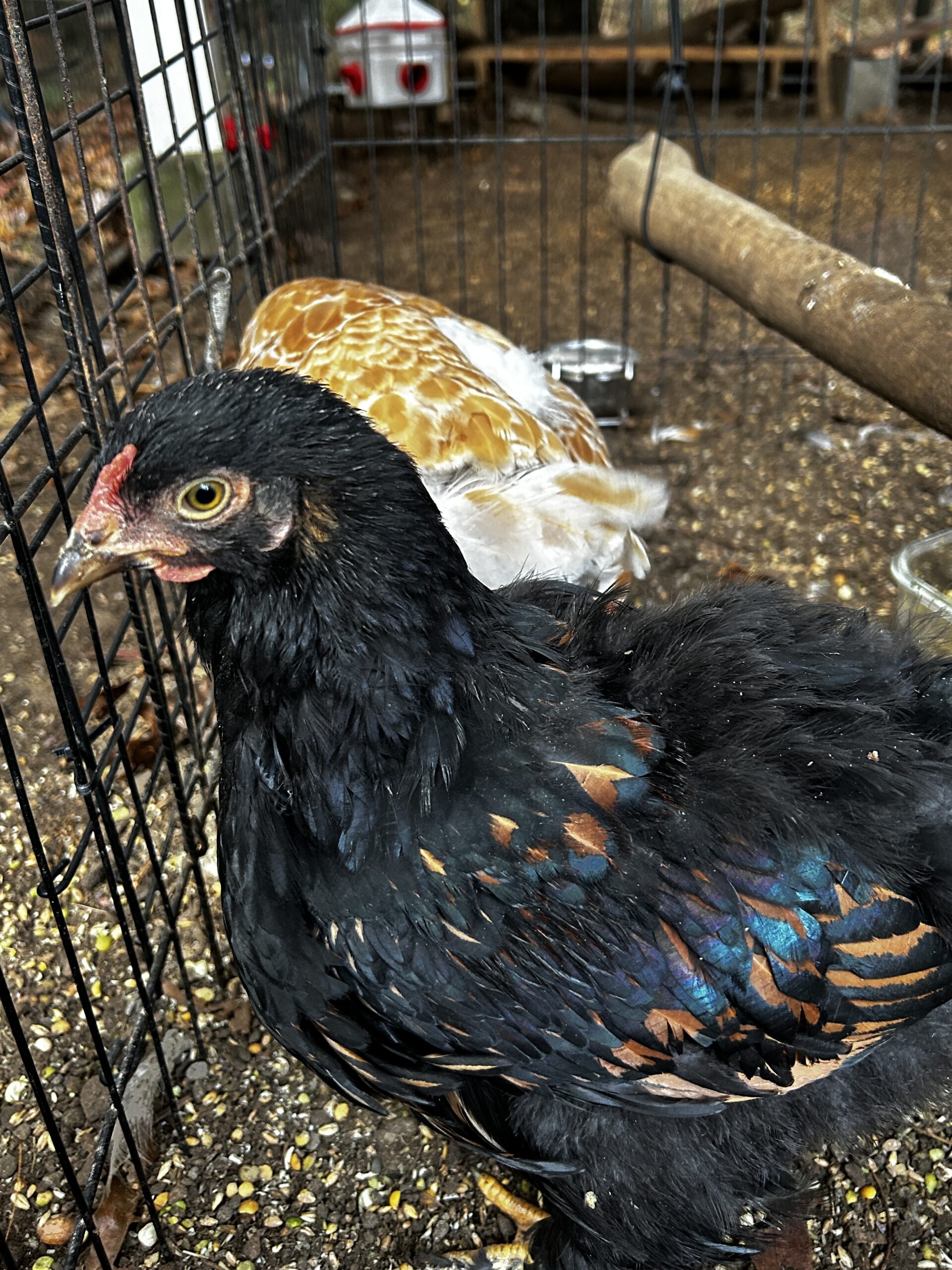
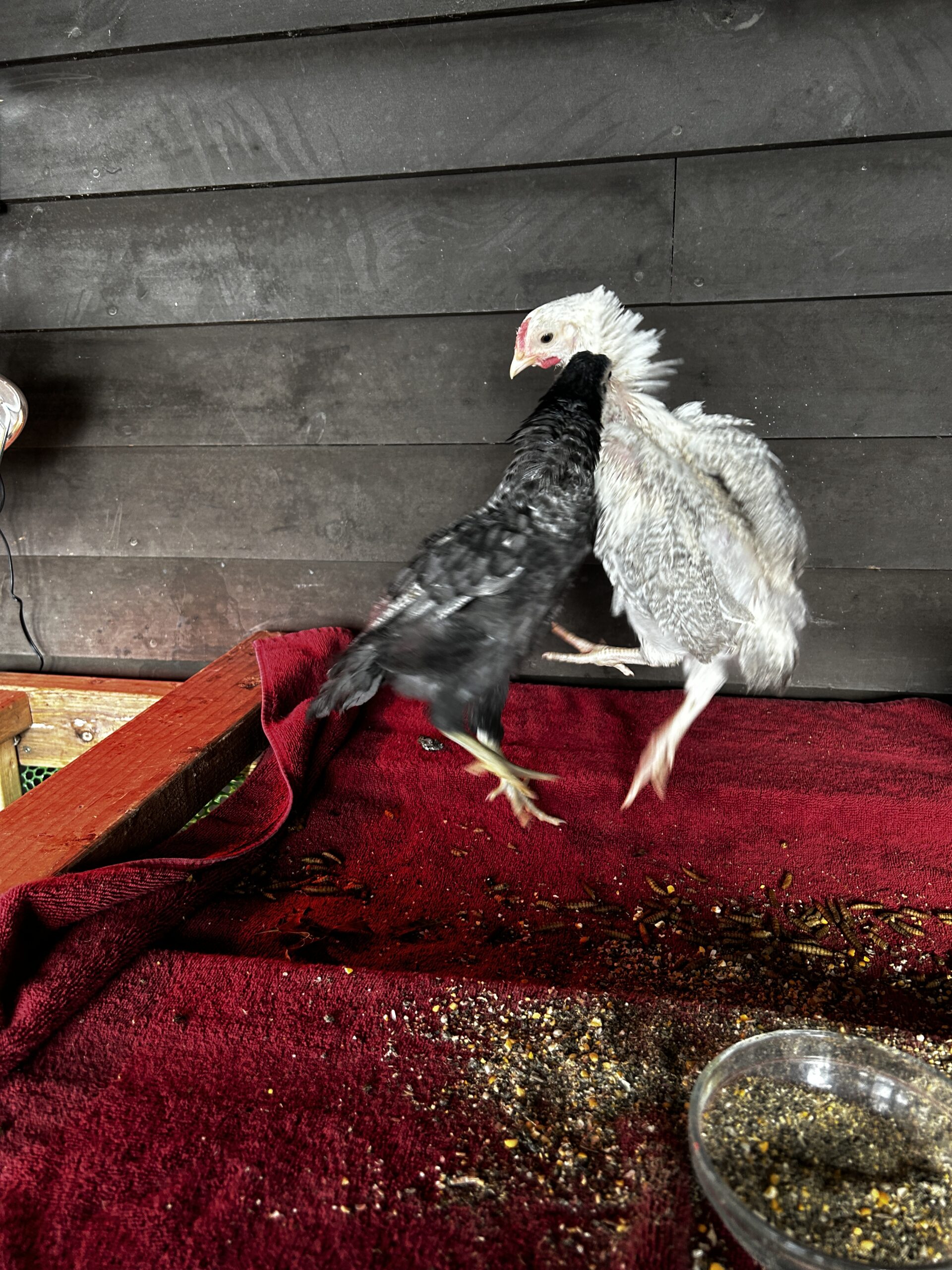
In summary, establishing a positive and respectful relationship with your chickens, based on understanding their natural behavior, is far more effective than attempting to assert dominance. Chickens thrive in environments where they feel secure, trust their caregivers, and can express their natural behaviors without unnecessary stress.
If you have a rooster and looking for help, we highly suggest you check out Roovolution or follow our posts as we work with Storm, our handsome Deathlayer rooster.
Roosters: Resources For Peaceful Coexistence With Your Rooster
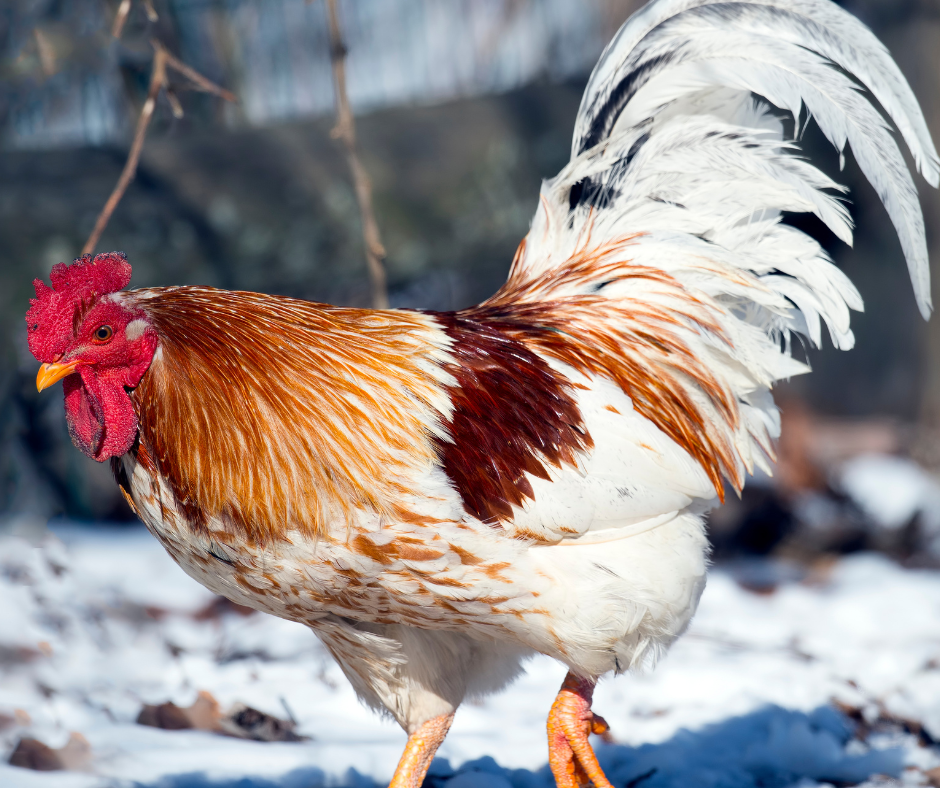
Living with a rooster transforms the rhythm of a homestead, infusing each day with the spirited personality of these feathered leaders. The crowing at dawn becomes a familiar melody, a natural alarm that signals the awakening of the farm. Beyond their role as timekeepers, roosters exhibit a protective nature, diligently watching over the flock with an alert eye and a vigilant stance.
Their colorful plumage and proud demeanor add an aesthetic charm to the coop, making them not just guardians but also living ornaments. While their crowing might be an acquired taste, it becomes an integral part of the homestead soundtrack, a testament to the lively presence of these charismatic birds. Despite their occasional assertiveness, a well-raised rooster contributes to a harmonious flock dynamic, creating a homestead atmosphere rich in both natural beauty and the unique charm of life with these feathered companions.
Share in our journey of learning Storm's behaviors, earning his trust, showing him that we aren't a threat to the flock, and living together peacefully.
Made With Love By Weekend Homesteaders
Gift Ideas For Chicken Lovers or Yourself
Pullover Hoodies Available On Amazon
Unique custom designs created by us at Weekend Homesteaders.
Let’s Talk Rooster
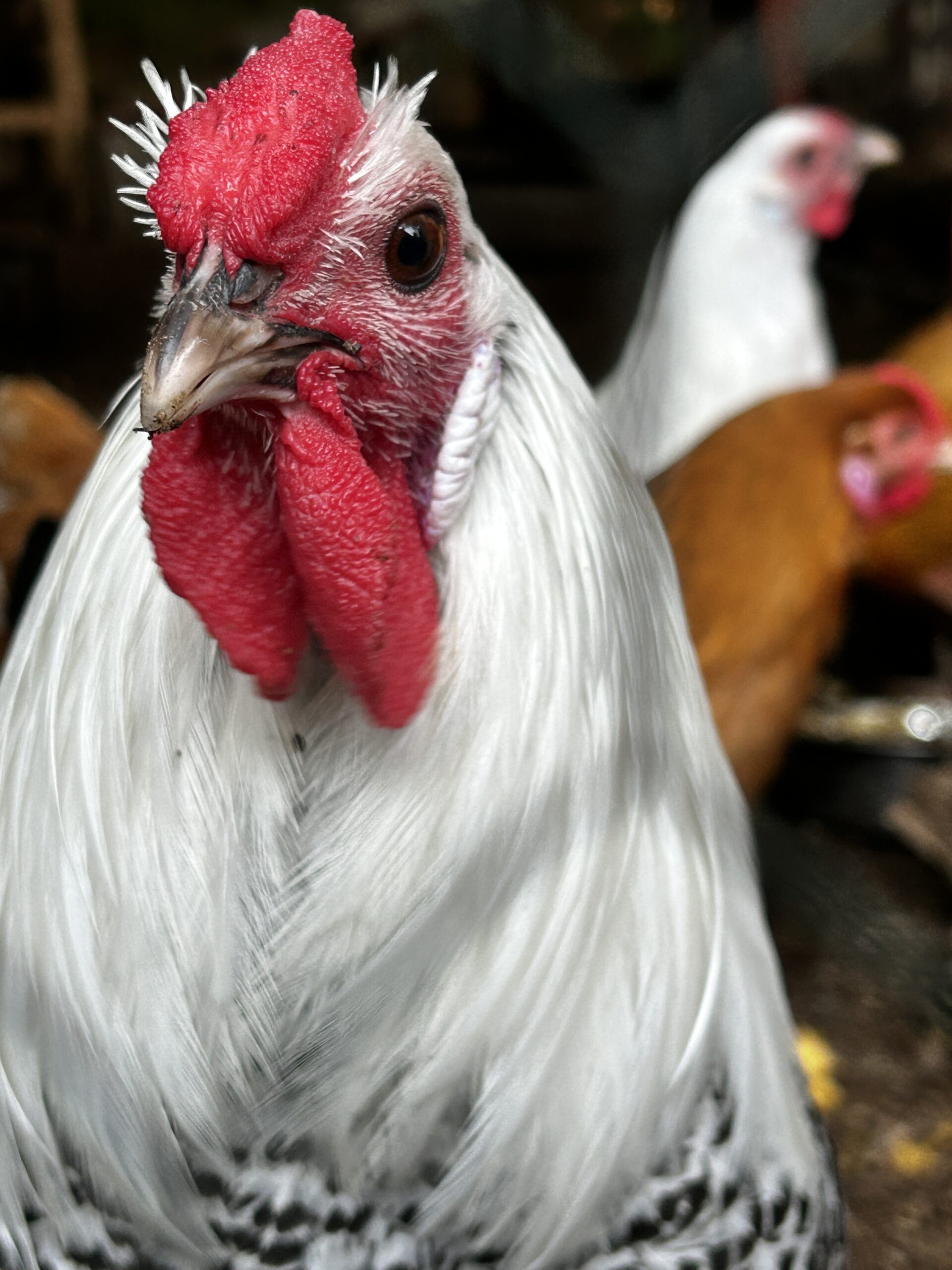
This is my rooster Storm, a Silver Deathlayer. At the time of writing, he is about 8 months old.
I won't go into the story of getting him (I'll save that for another day). I wanted a Deathlayer roo, and was happy to hatch him and his 2 DL hens. He joined my Wyandotte hens (3) and we recently added Amercauna hens (2) to his flock.
Storm was as sweet as anything until his girls started laying and about the time his hormones kicked in. Now, he has his moments and I am working hard to understand his behavior and build trust.
I am in a lot of chicken groups on Facebook and I see so many posts about roosters and the recommended solutions to their natural behaviors. When you really look at the psychology, many of the recommendations, just don't make sense.
First, we need to look at the primary purpose of a rooster, it's to protect the flock. Chickens are prey animals, and their instinct to survive is strong. A rooster's instinct protect the flock is STRONG.
People's first go-to, when it comes to roosters, is dominance. Many methods of dominance are actually creating fear. Fear is not trust, and it's not the relationship that I am looking to create with my rooster.
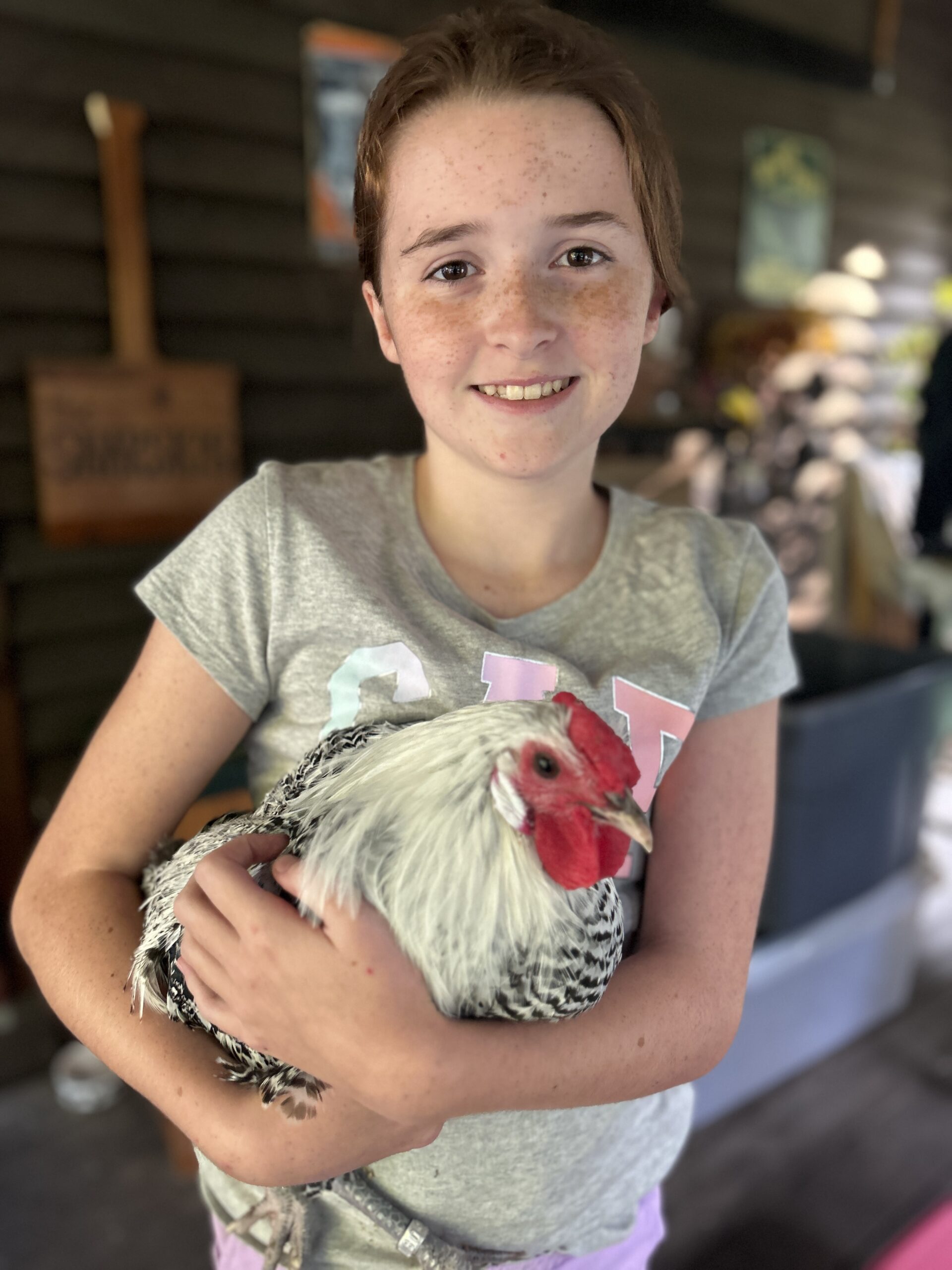
A little digression but I have worked with horses for many years, another prey animal. Dominance doesn't work. I could not nor would not try to out muscle and dominate a 1200 lb animal. Granted, roosters are only 7lbs or so (depending on the breed) and easy to out muscle ... but the psychology, regardless of size, is the same.
A relationship of fear is not the goal. It may provide a temporary solution but disaster is ahead. Fear may create submission, but that isn't trust and could have unwanted consequences when you aren't looking.
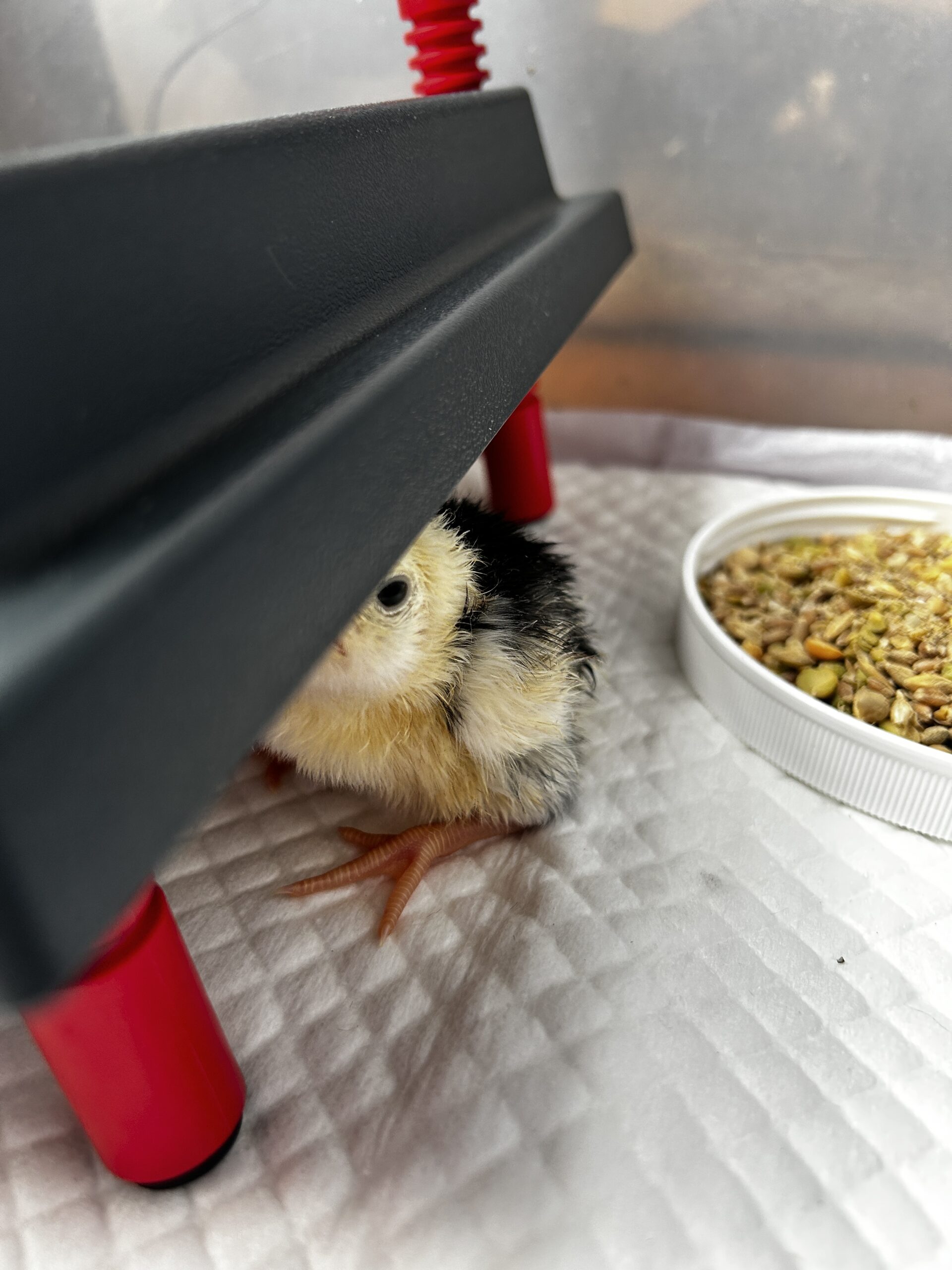
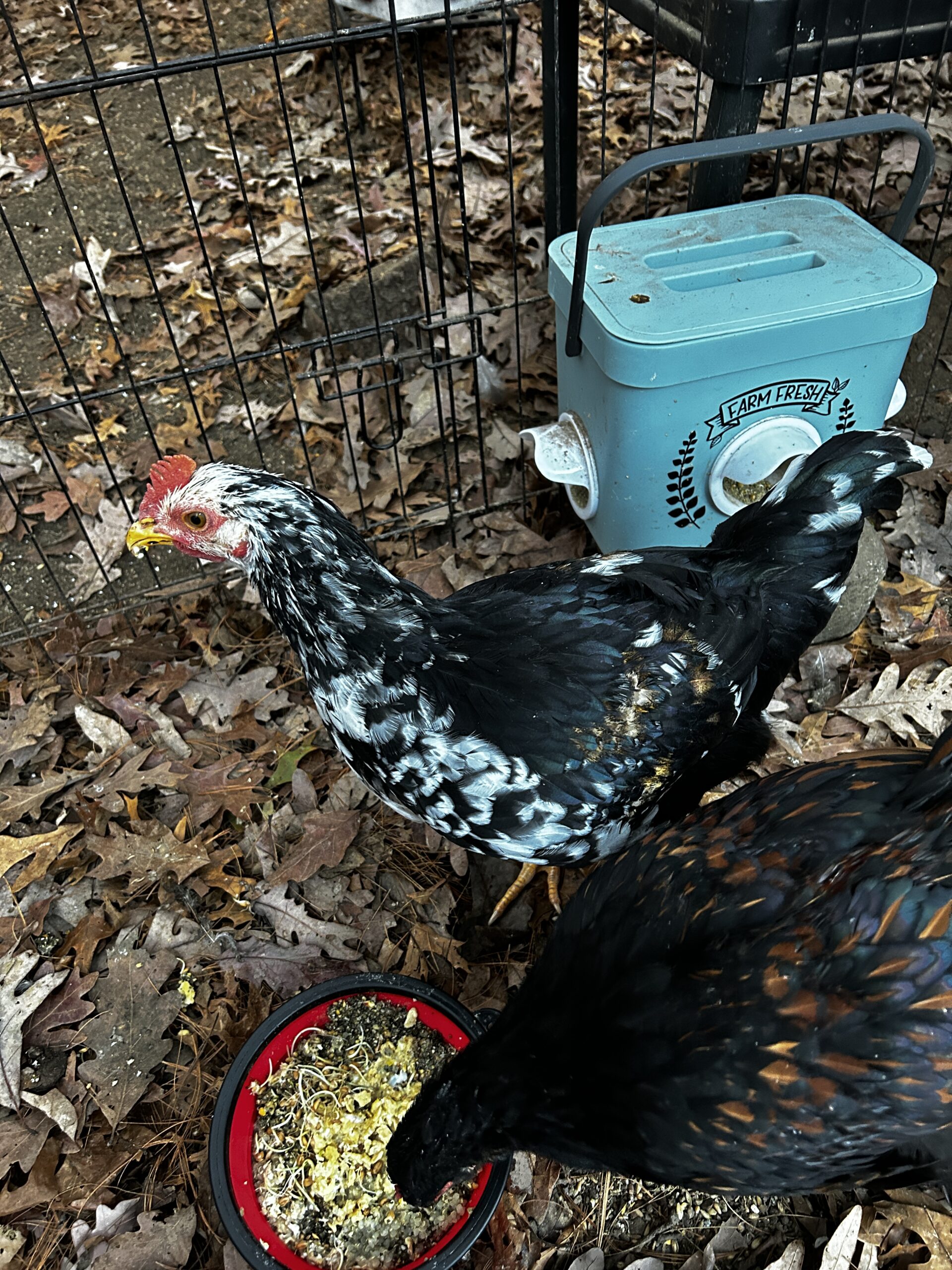

Roosters aren't for everyone. For some flocks, they aren't necessary. And sadly roosters are a dime a dozen ... think about it ... 1 rooster to 8-10 hens with a 50% hen/rooster hatch rate ... to most roosters are disposable. Solution to a problem, make soup and get another and try again.
So again think of the psychology, create fear in your rooster and it will increase their innate drive to protect. Cultivate trust, a different story. It takes time and work, but if you have a rooster you want, especially rare breeds, putting the time in is well worth it.
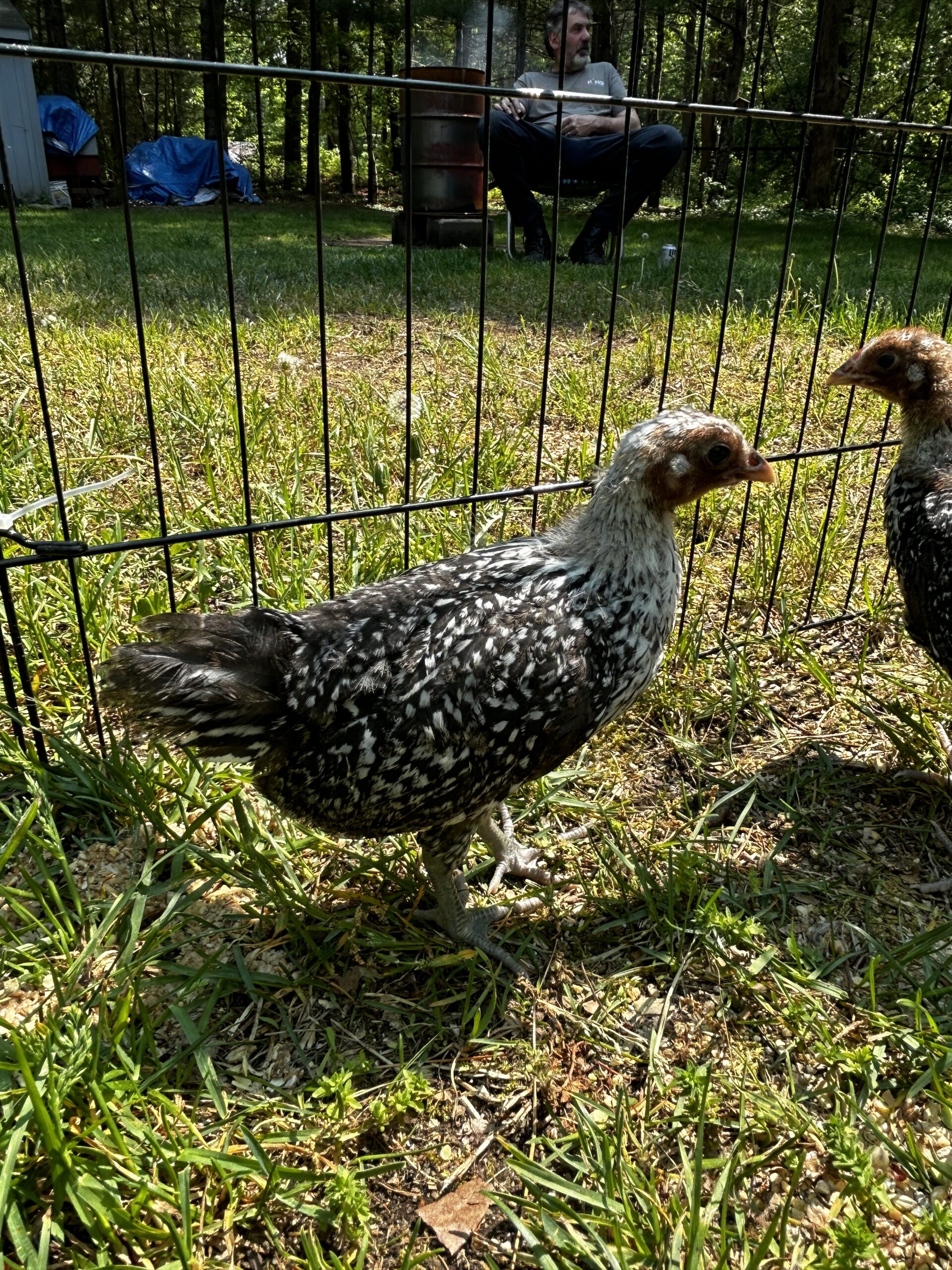
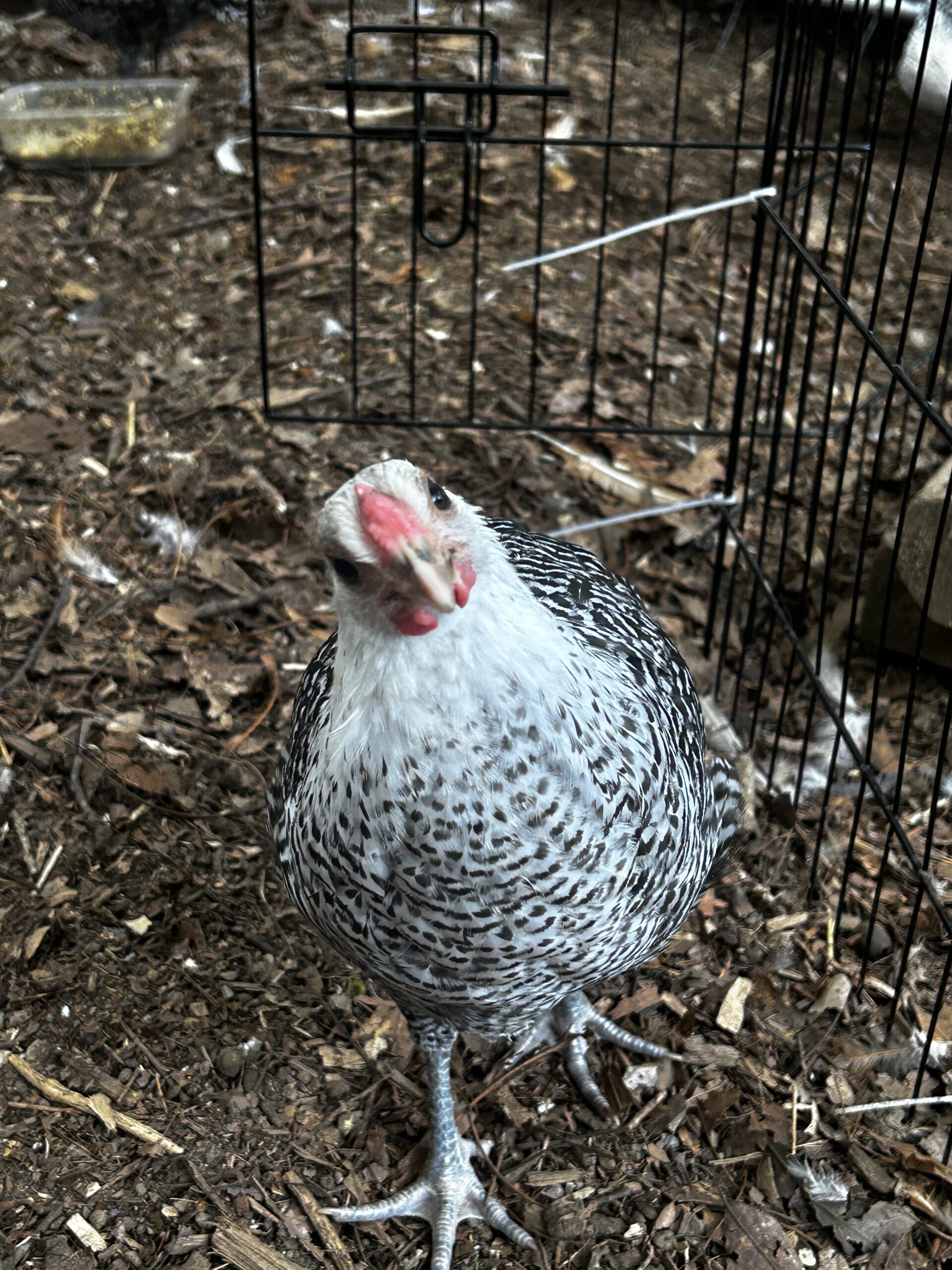
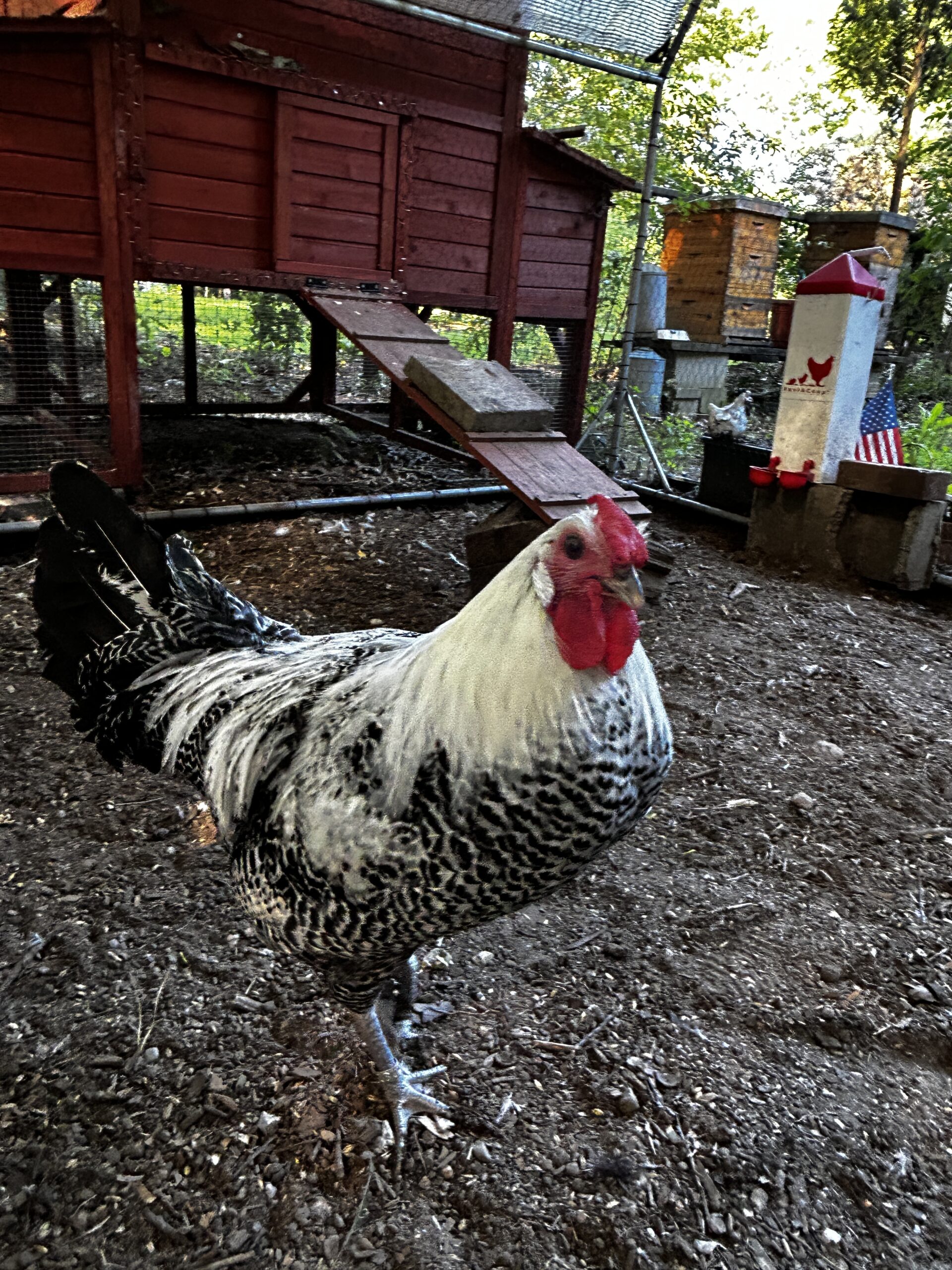
More about Storm ... he has come at me ... but never has "yet" made contact. I never turn my back on him, I always bring him treats (he loves popcorn), he hates new voices ... if I am on my phone collecting eggs or near the run and on speaker phone, he gets upset and aggressive. He does not like me handling "his" hens. He always backs off if I step towards him. I have to use a net to catch him. I wish this wasn't the case and am working to change it, but it is what it is right now. When I catch him, I hold and pet him and he relaxes.
I am always contentious of his behavior. I can see when he is agitated. I NEVER wear shorts in the run. I have gloves that I wear when needed, like when opening or shutting my coop door (it gets stuck) because it doesn't work smoothly, it will be fixed but until then, I wear gloves because Storm will come at the door if it gets stuck and he feels threatened and peck my fingers.. Sounds silly, but I now sing to them when I go in the coop to close the door at night (Zip-a-Dee-Doo-Dah).
The bottom line is Storm doesn't trust me. Will he learn to? I hope so. I will do all that I can to earn his trust ... soup isn't the answer.
Want to learn more about building a relationship with your rooster, then check out Roovolution.
Our Chicks: Photo Gallery
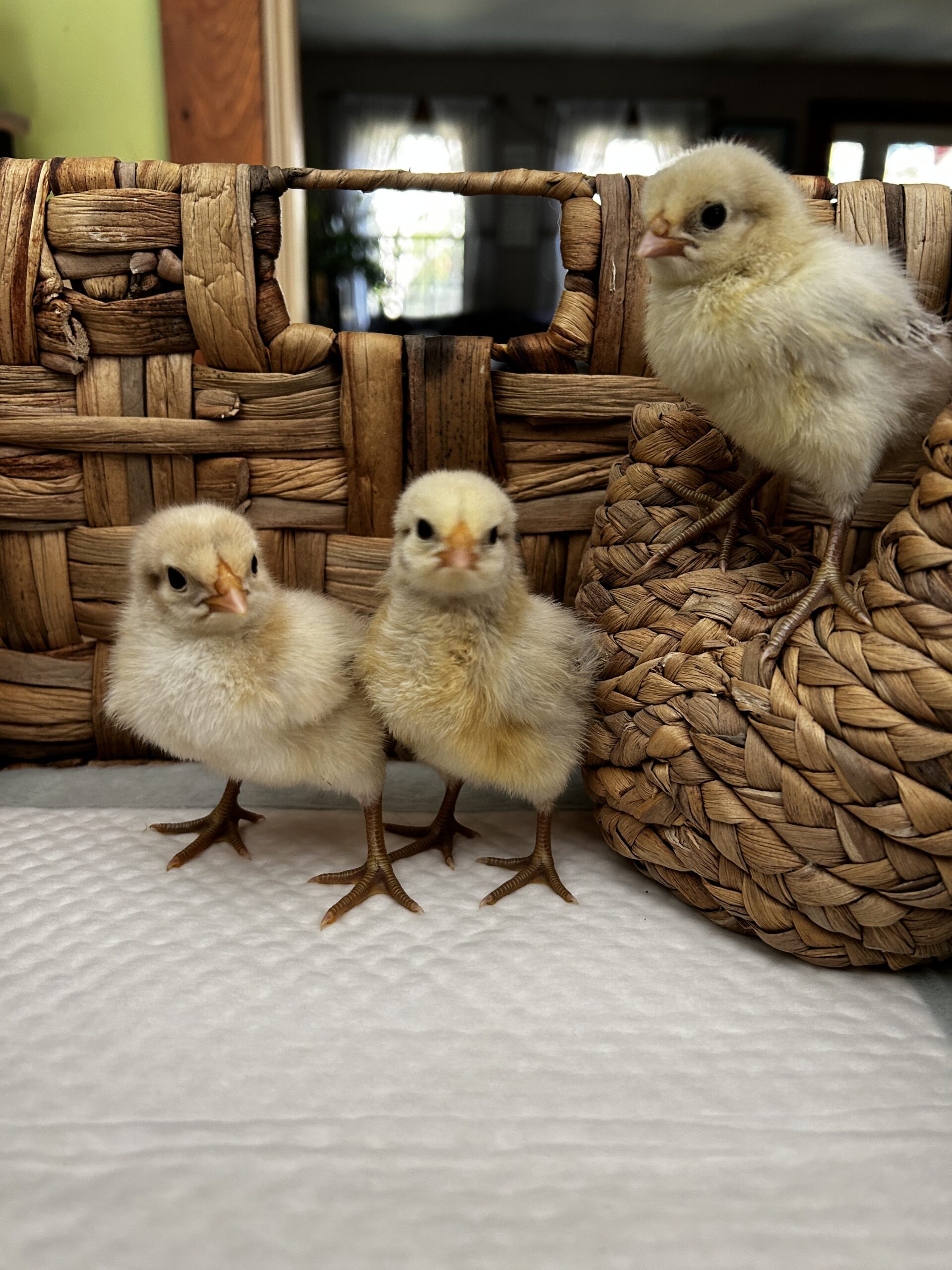
It's a reminder of the cycles of life, the beauty of growth, and the pure delight found in the simplicity of caring for these tiny, feathered wonders. In every fluttering wing and curious gaze, there's a reflection of the joy that comes with being a part of their journey from chickhood to the thriving members of the flock.
Check out our March 16, 2024 hatch photoshoot ...
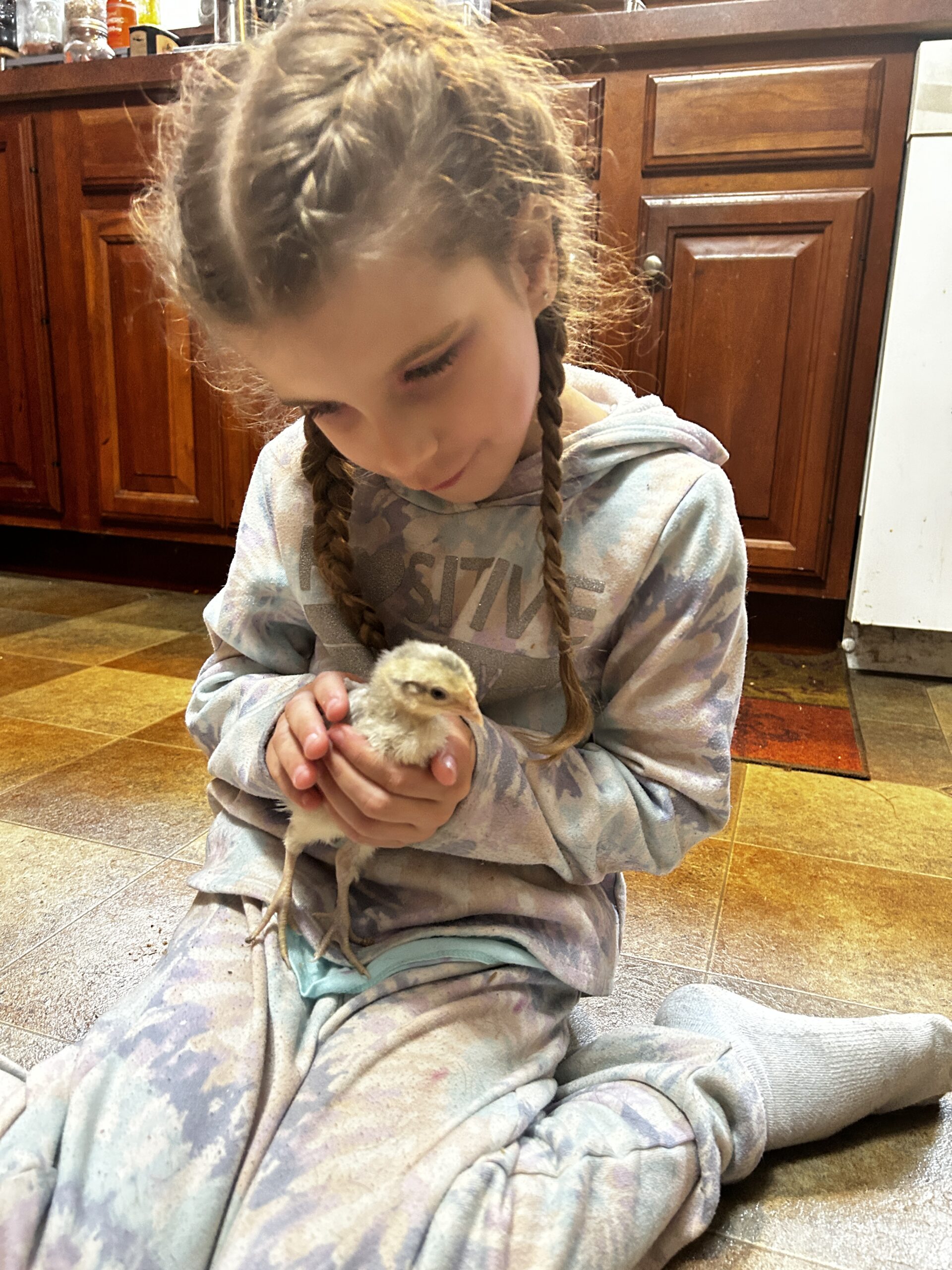
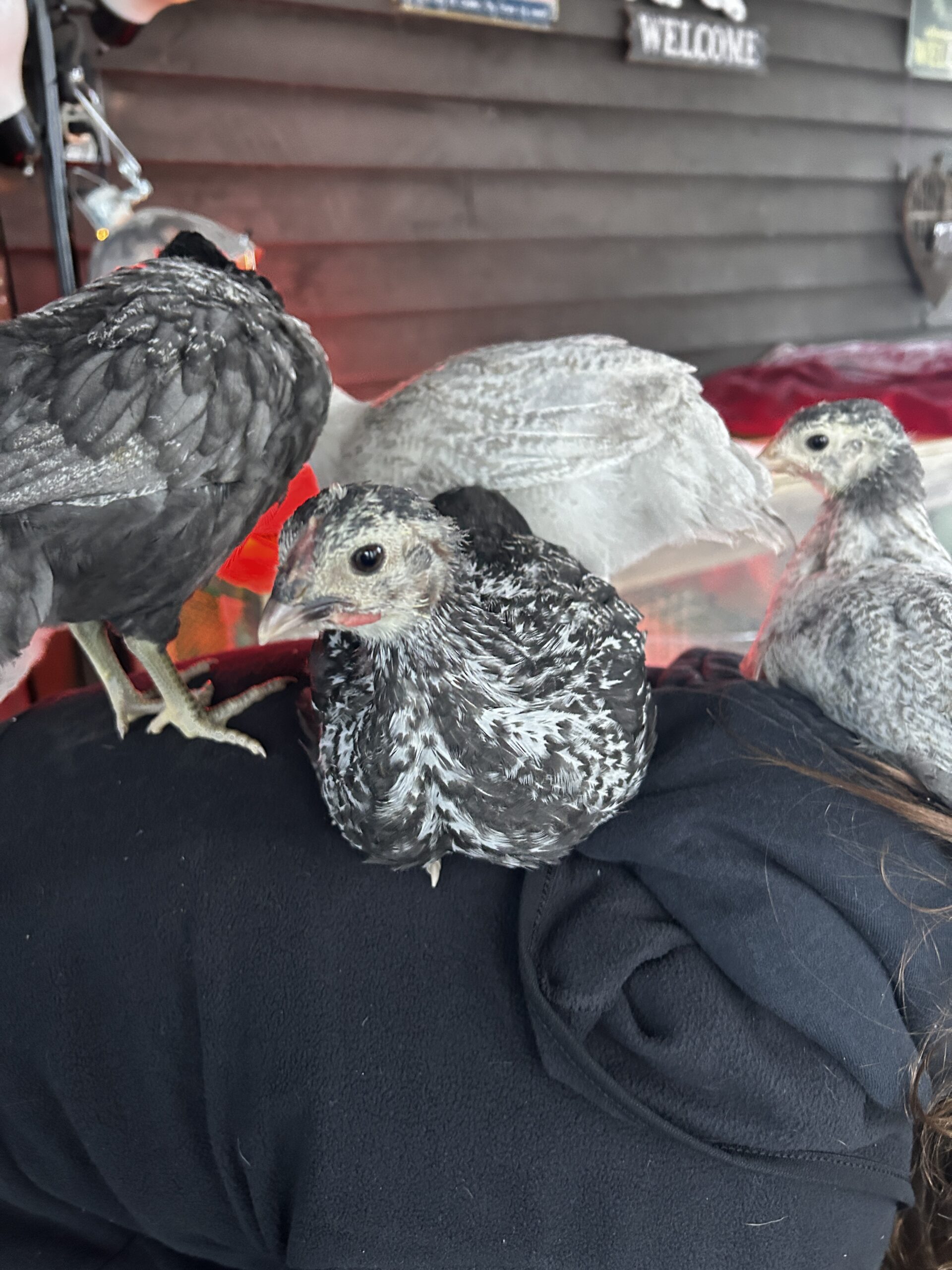
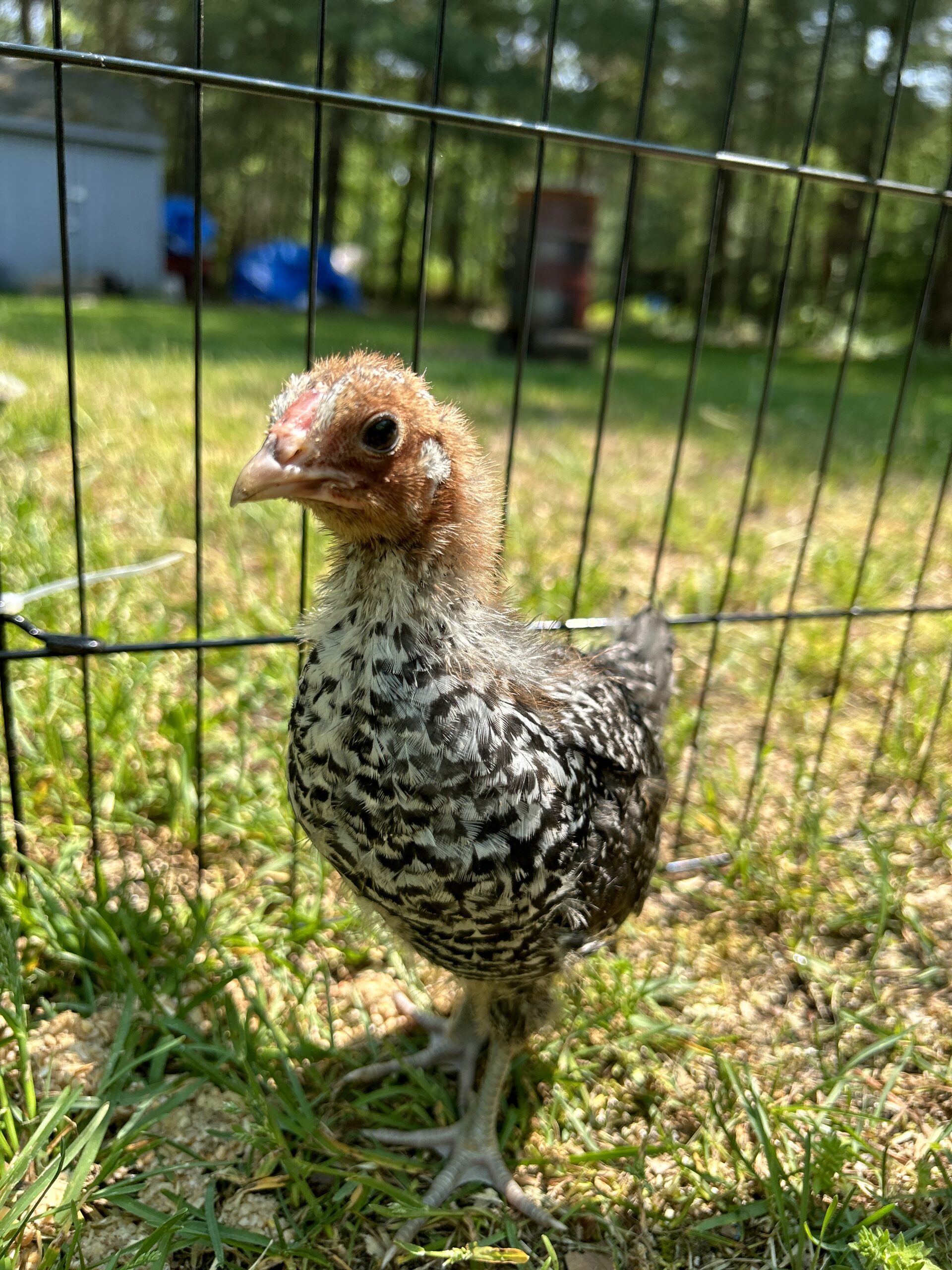
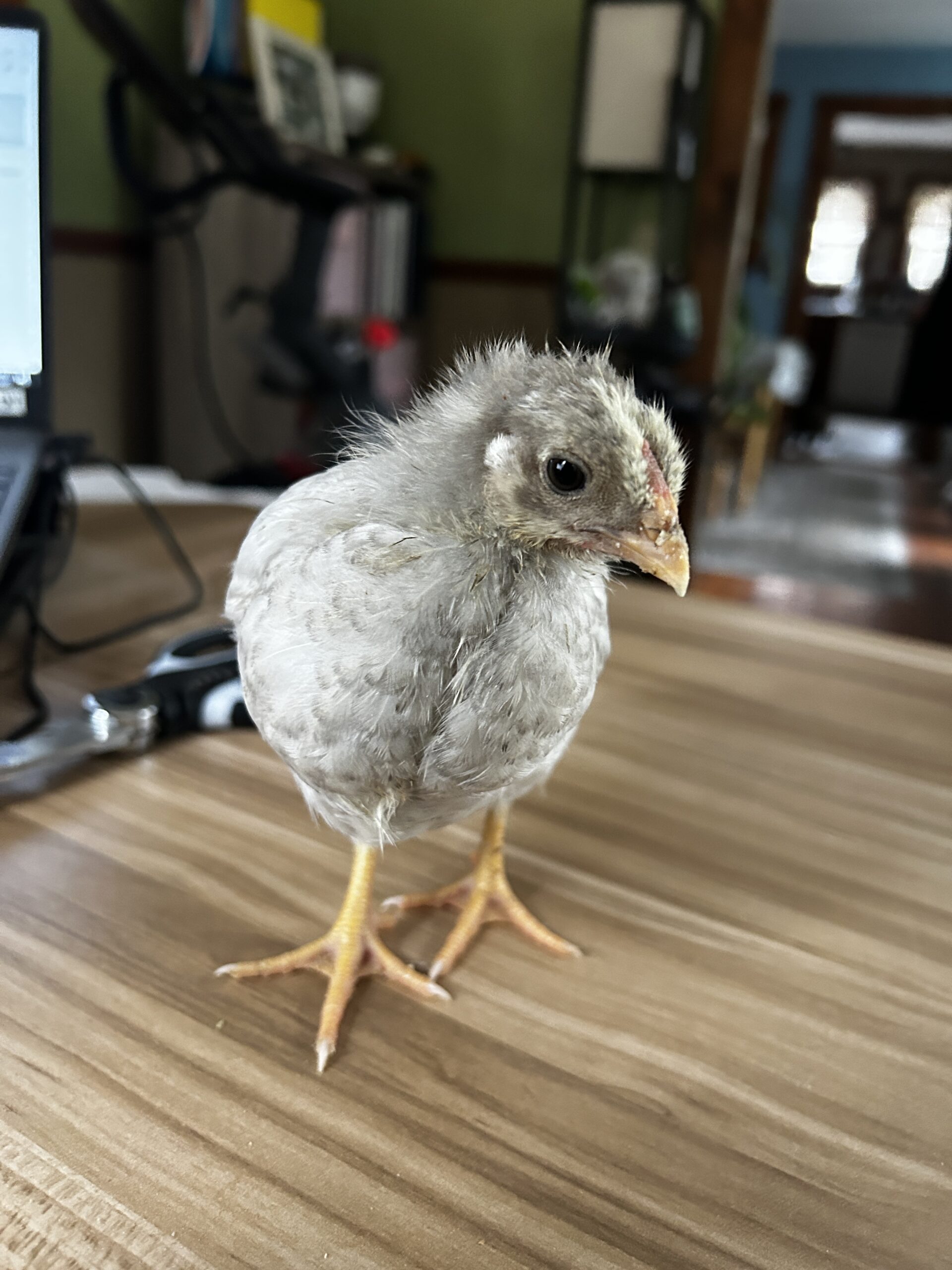
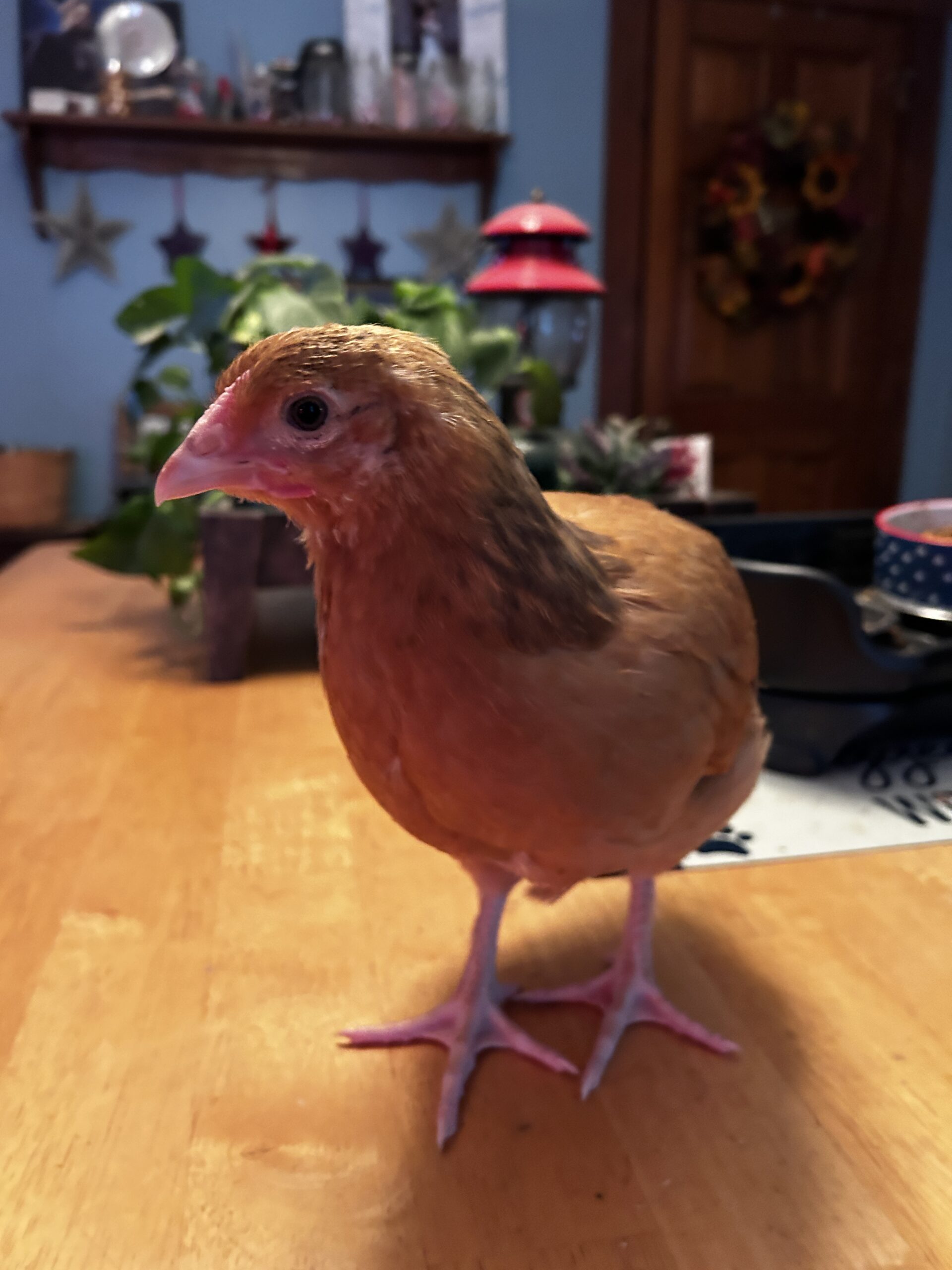

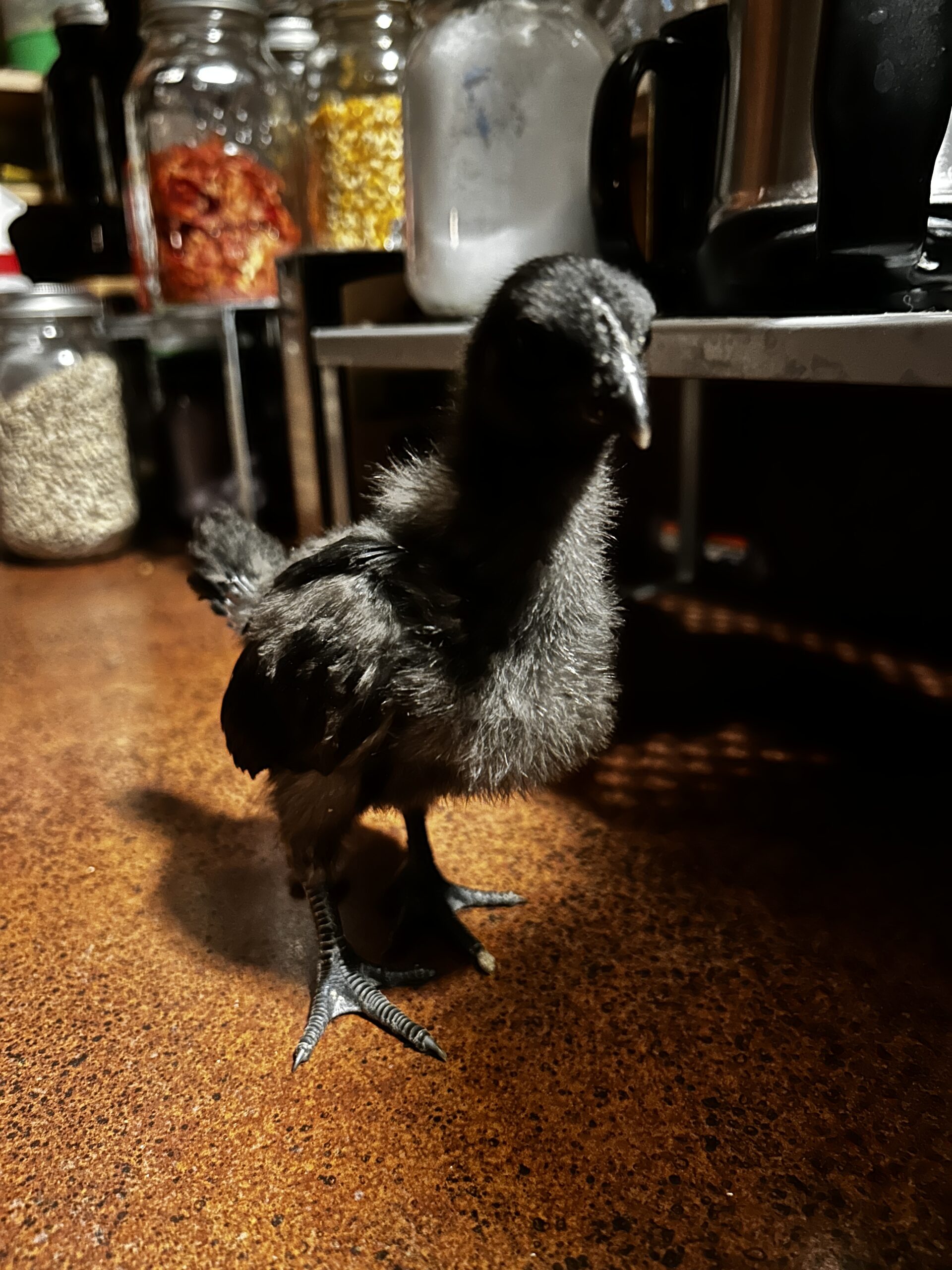
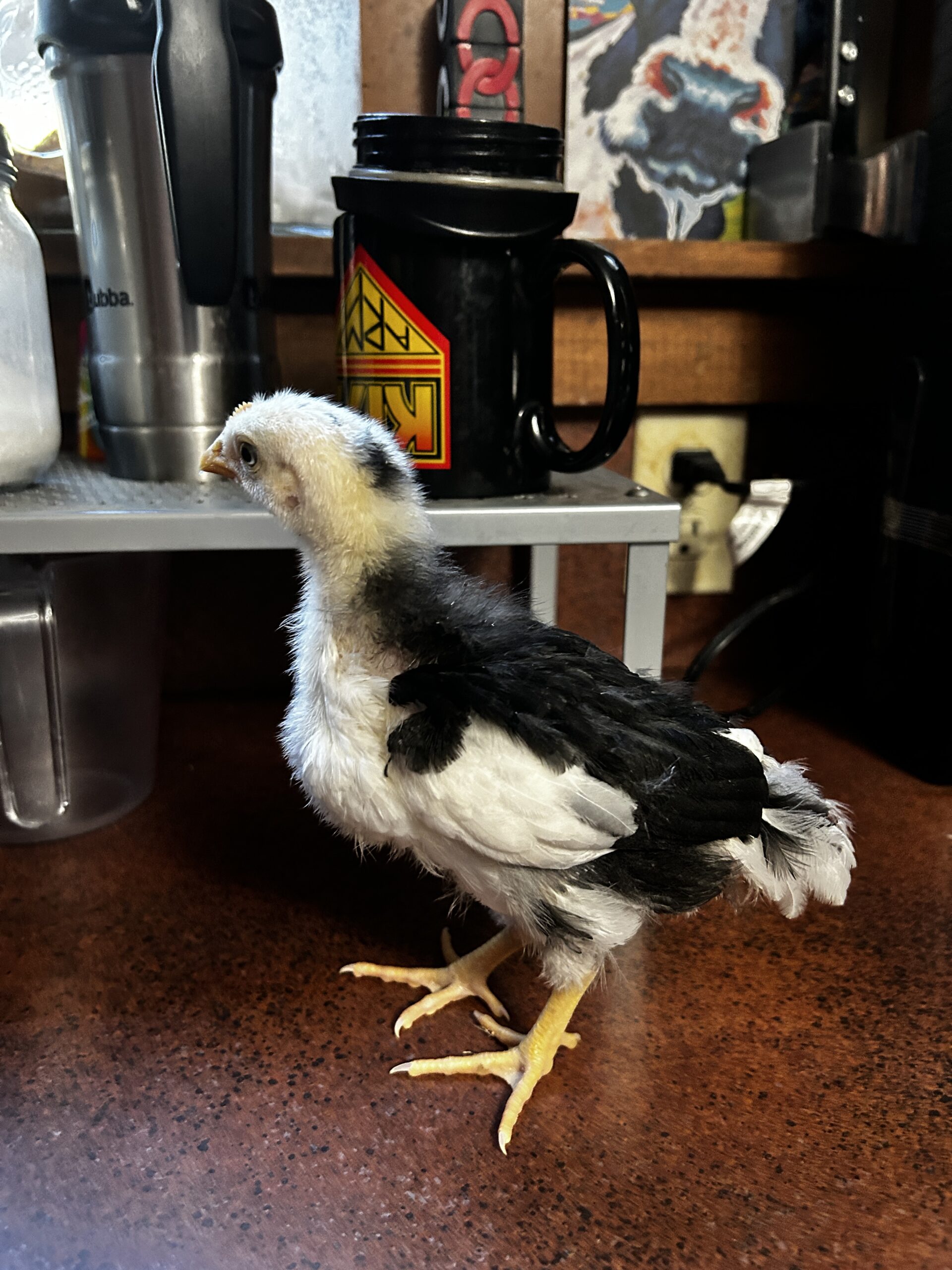
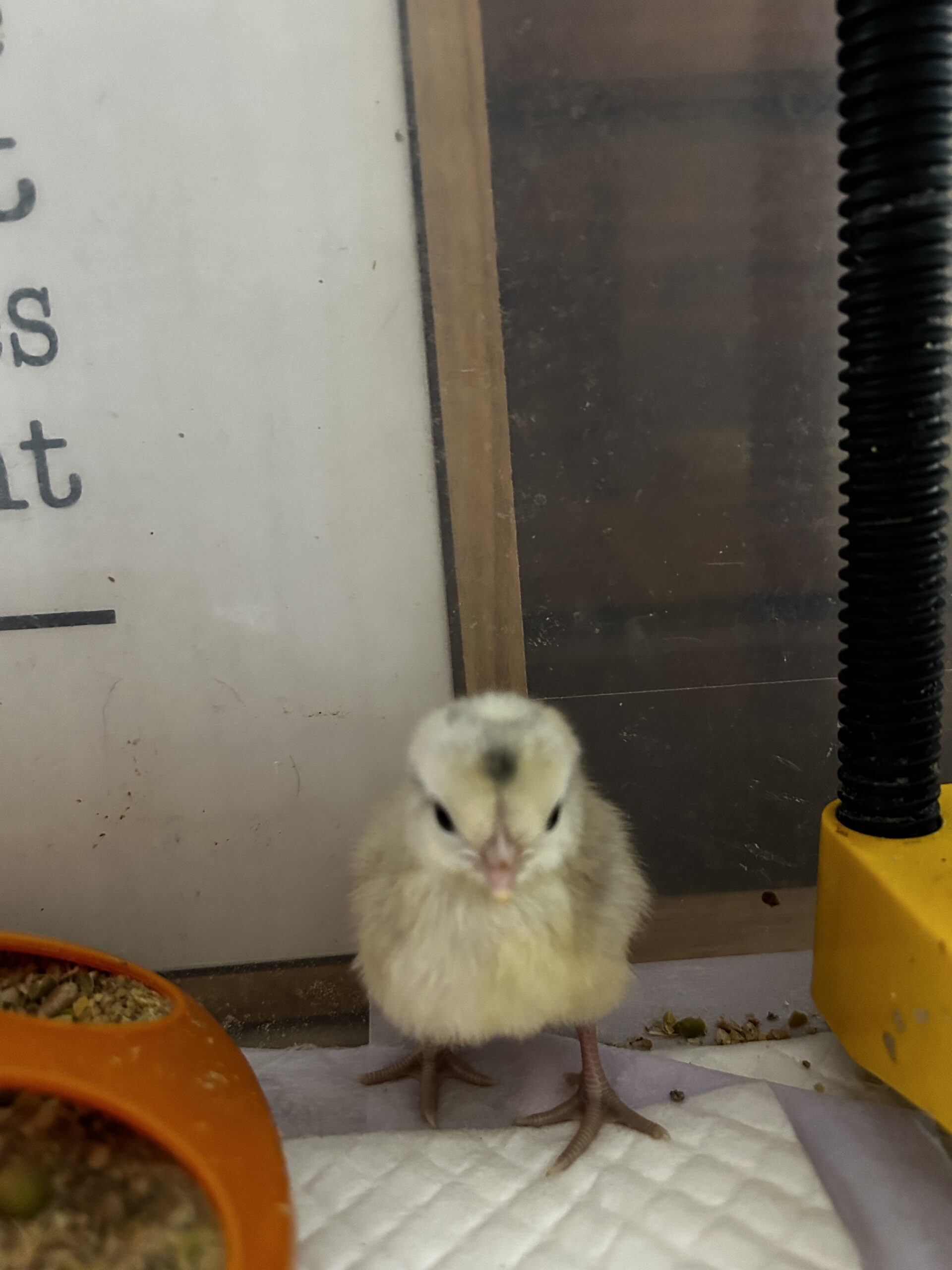
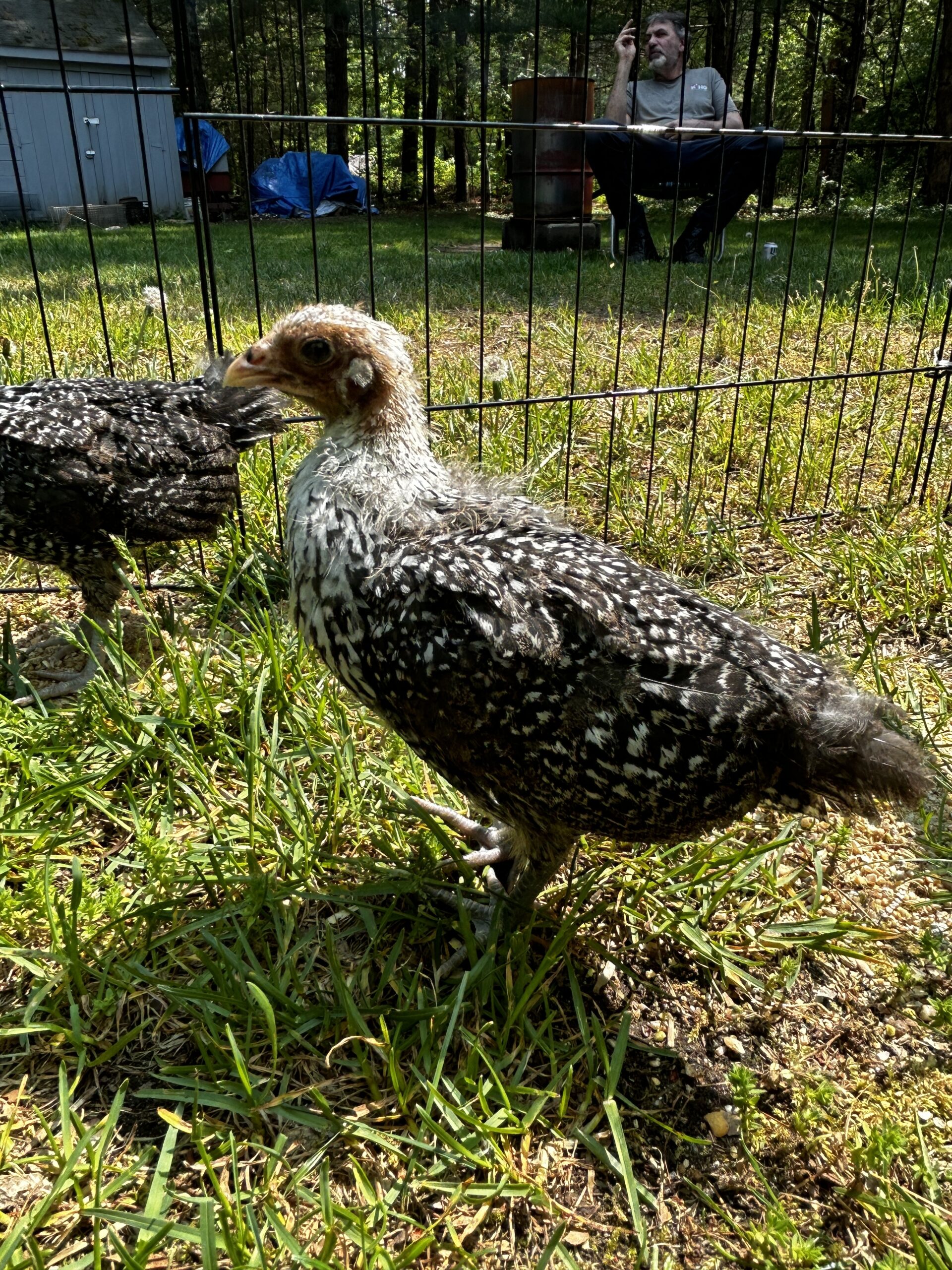
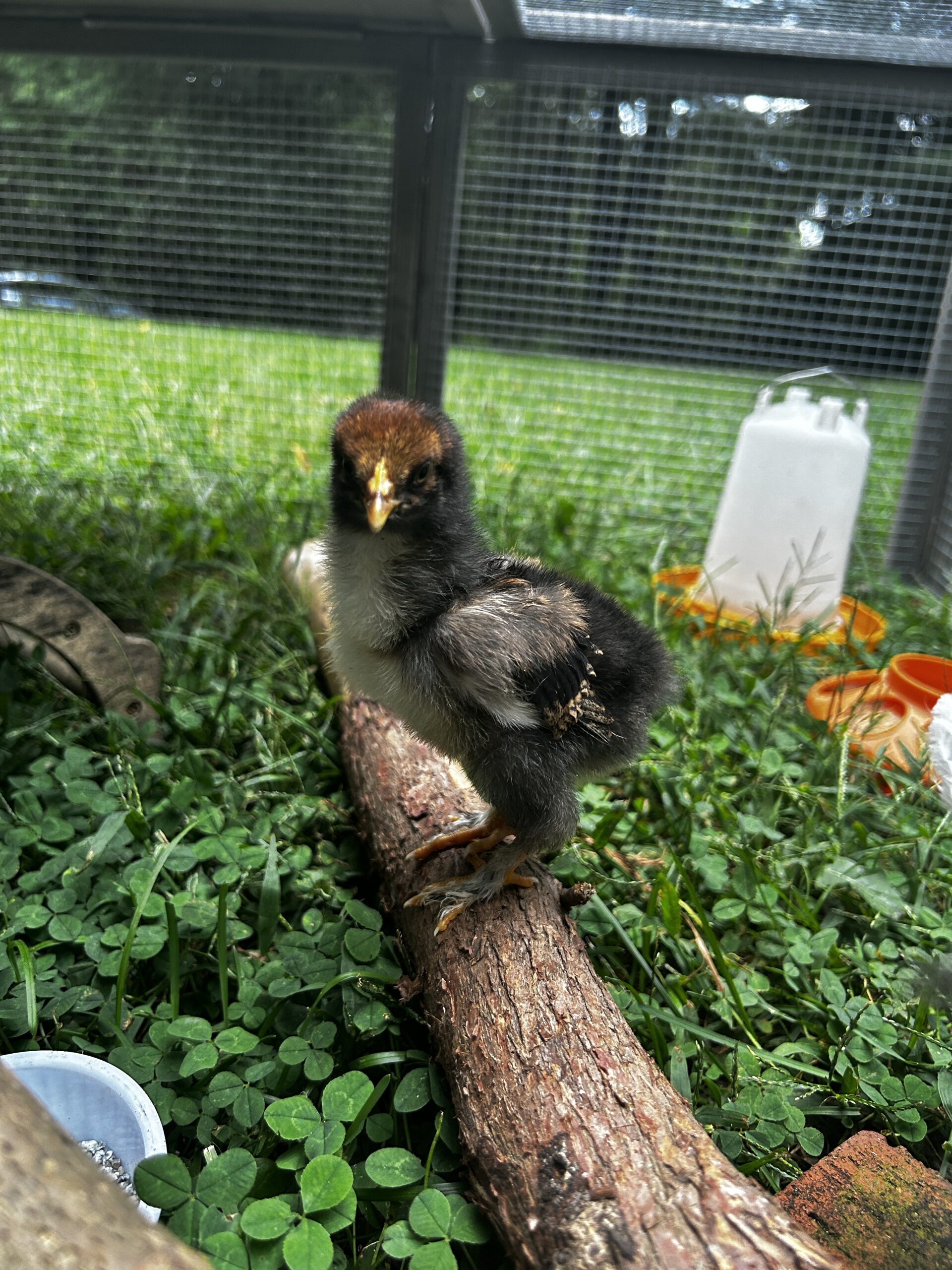
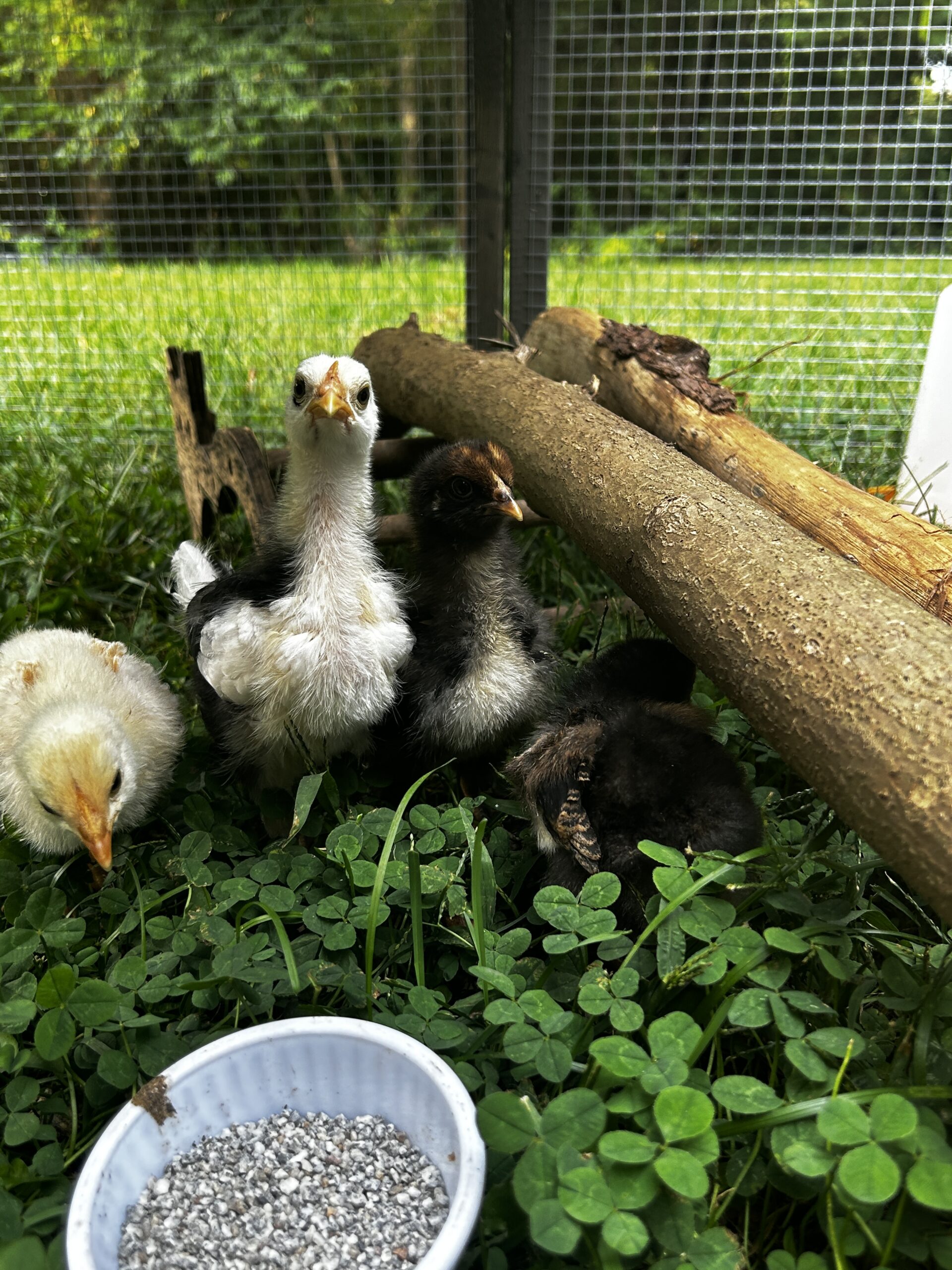

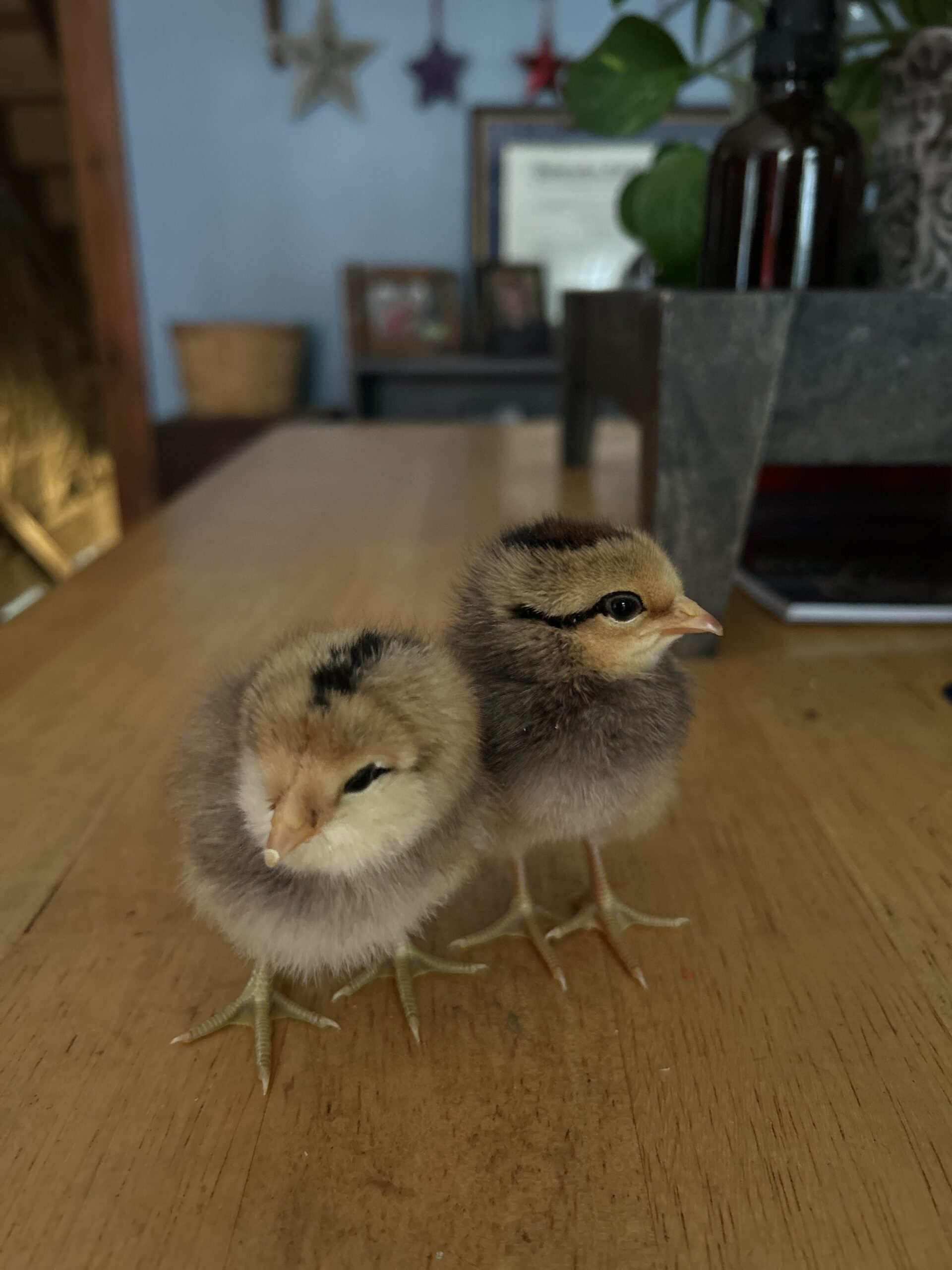
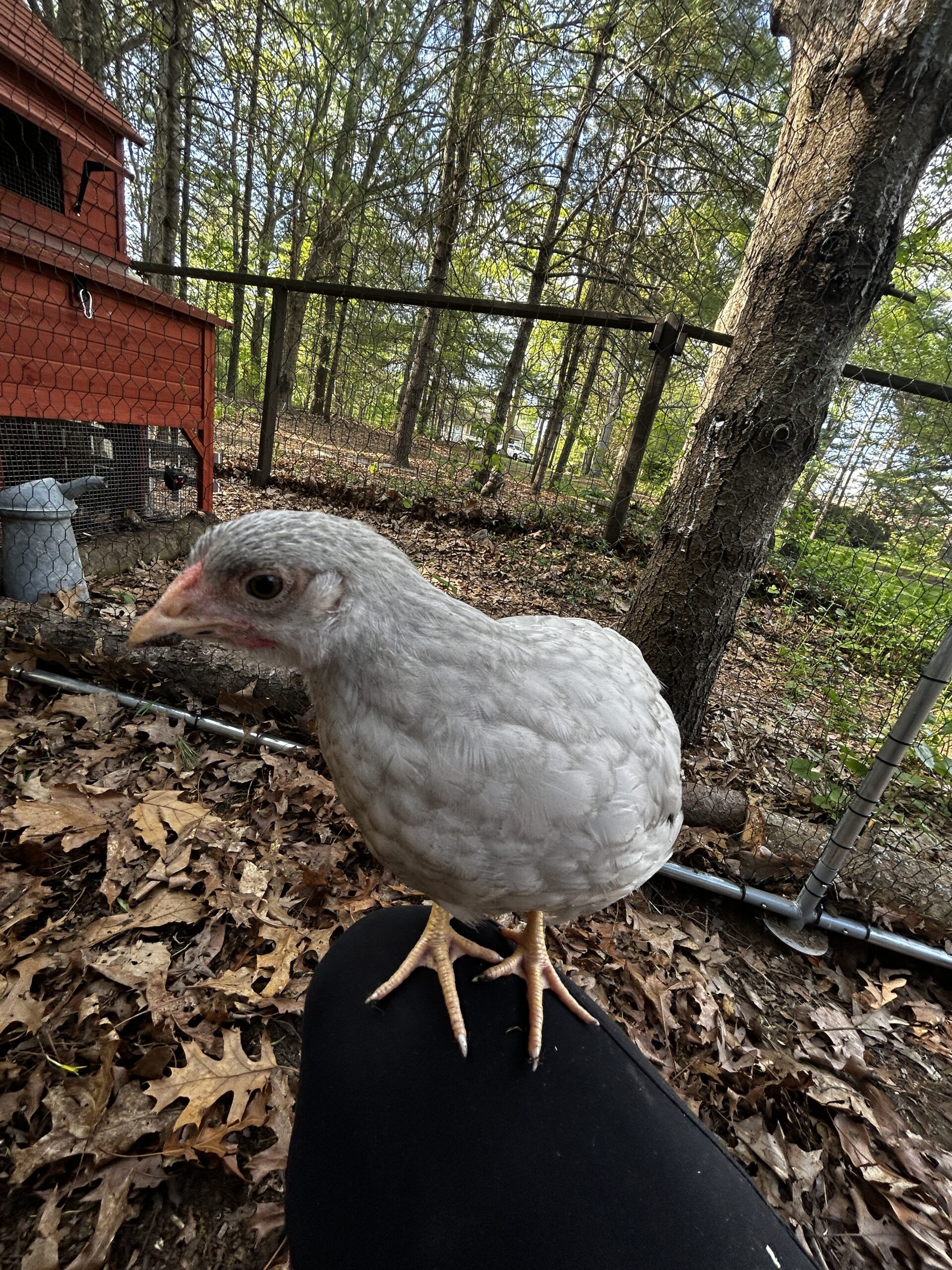
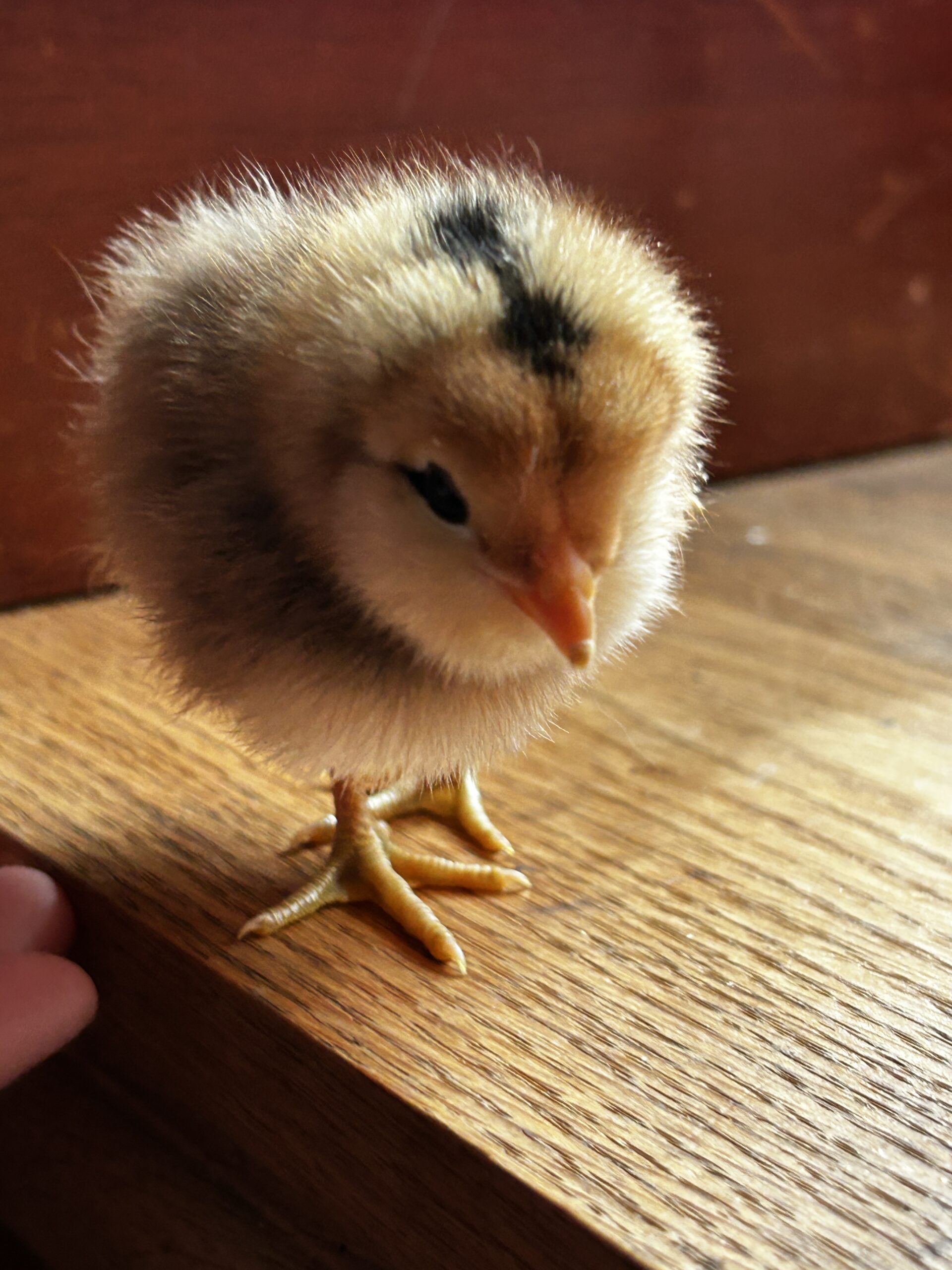
Taming The Storm 10/13/23

Meet Storm, my young Deathlayer rooster and a little fireball. I hatched him in April and he was a sweetheart ... he was a sweetheart up until his girls started laying.
One day, I went in his run with my granddaughter and he charged her. That was the start.
He's come at me about 4 times BUT in observing his behavior and when it happens, I see this as "protectiveness" and not "aggression." He's young, his hormones have kicked in and his behavior (which I closely watch) indicates he is learning his job. He's fine 90% of the time but if he feels his girls are threatened, he protects.
Today was probably our worst day. He came at me this morning when I opened the coop and again tonight when I was ready to put them to bed. There was NO excuse this morning except he was acting like an ass ... tonight, he went to bed but 2 girls were still out. When I went in to close the door, they were still out and he came out to protect them. I get that BUT it's unacceptable.
Previously, catching him was impossible, but now I set up a little pen inside the run (I'm integrating 2 hens into the flock) so catching him now is a breeze.
I caught him this morning and again tonight. No problem. Although, I guess I was yelling at him tonight, so much that my husband heard me and opened the window and yelled out if I was okay. LOL, yep, I was, but I guess I was loud in the process.
Our routine when this happens is that I pin him on his back on the ground and hold him there until he relaxes. I then pick him up with his head faced downward, like a football under my arm and carry him around.
Once I have him, he is calm. He doesn't fight back in any way and is as sweet as he was as a baby.

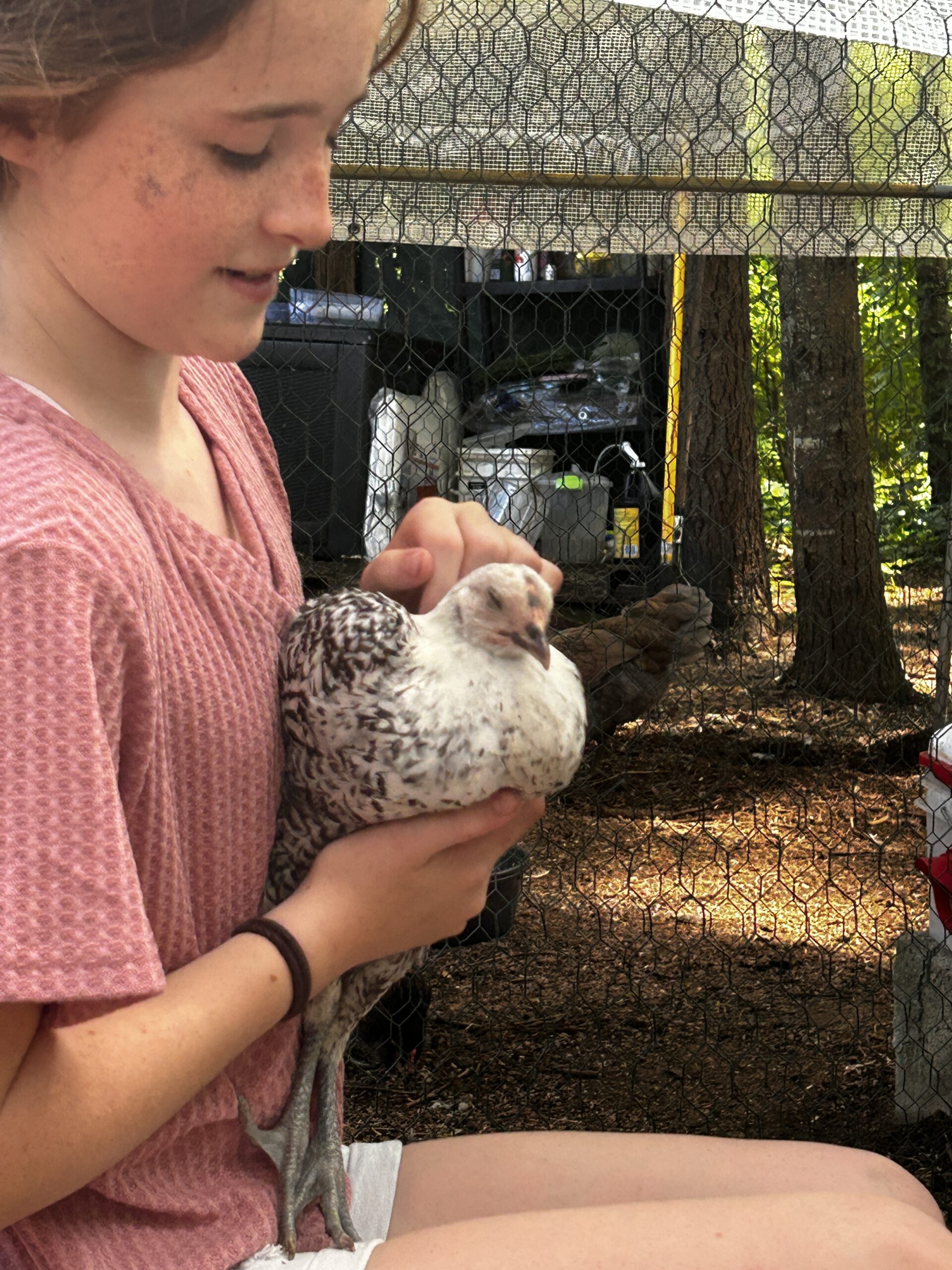
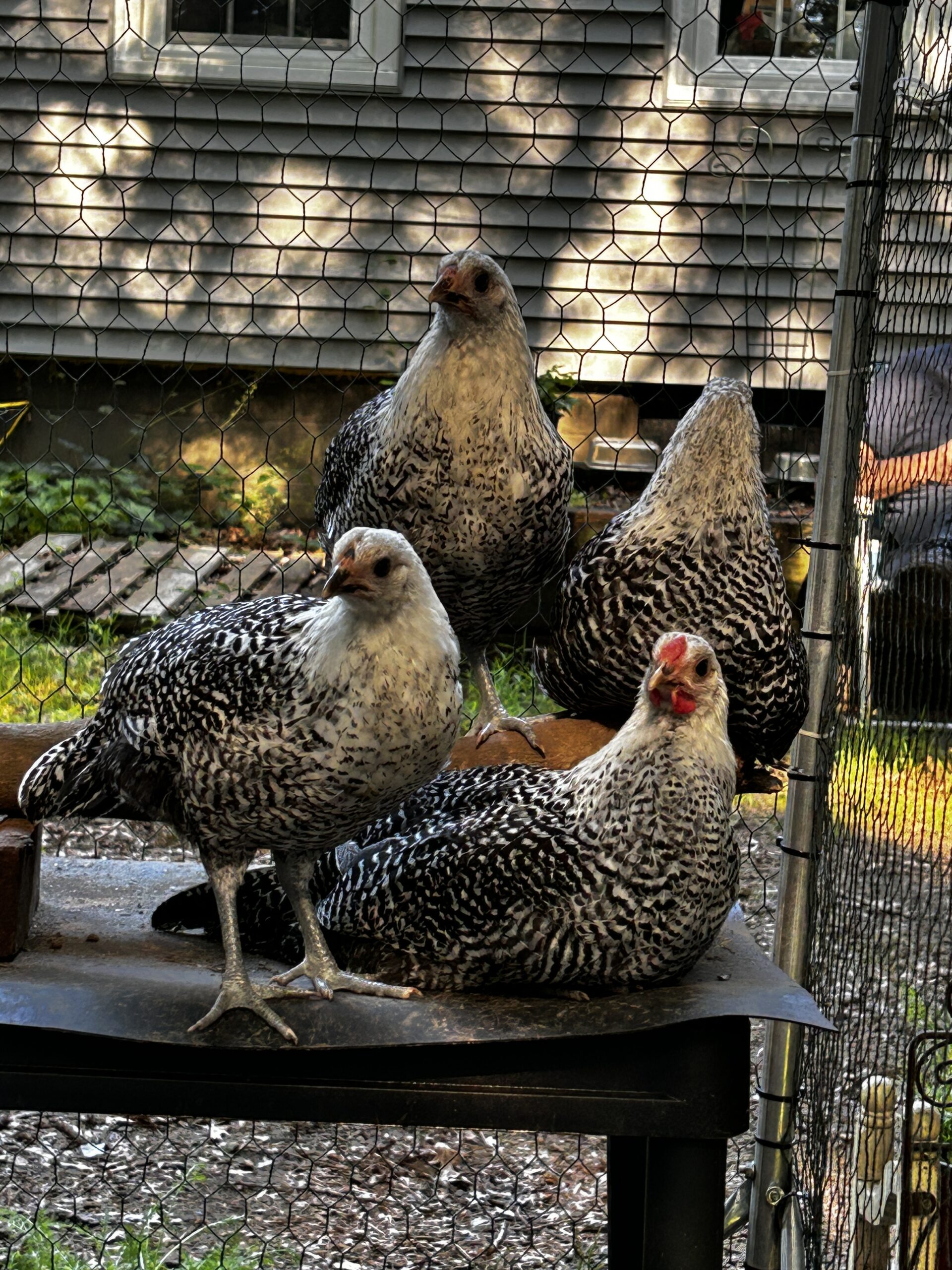
I will be the first to say that my experience with roosters is minimal. Horses, dogs, cats ... years of experience but roosters are new.
I figure if I can handle a 1200 lb horse, I can deal with an 8 lb (if that) rooster. In dealing with him, these are my thoughts:
- No fear. I am not afraid of Storm. If I was afraid of him, he'd be gone.
- Observing and understanding his behavior. He is young and protective, not aggressive.
- Developing trust so he knows I won't hurt our girls and I know he will protect them.
- Handling Storm as much as possible, making it a positive experience.
- Always being prepared and on the offensive: very simple, have my arms and legs covered when I go in the room, maintain eye contact and exit the run when he is relaxed.
Every day may not be perfect but we are working on an understanding.
I worked hard to get this boy and am not giving up on him.
Tomorrow is another day.

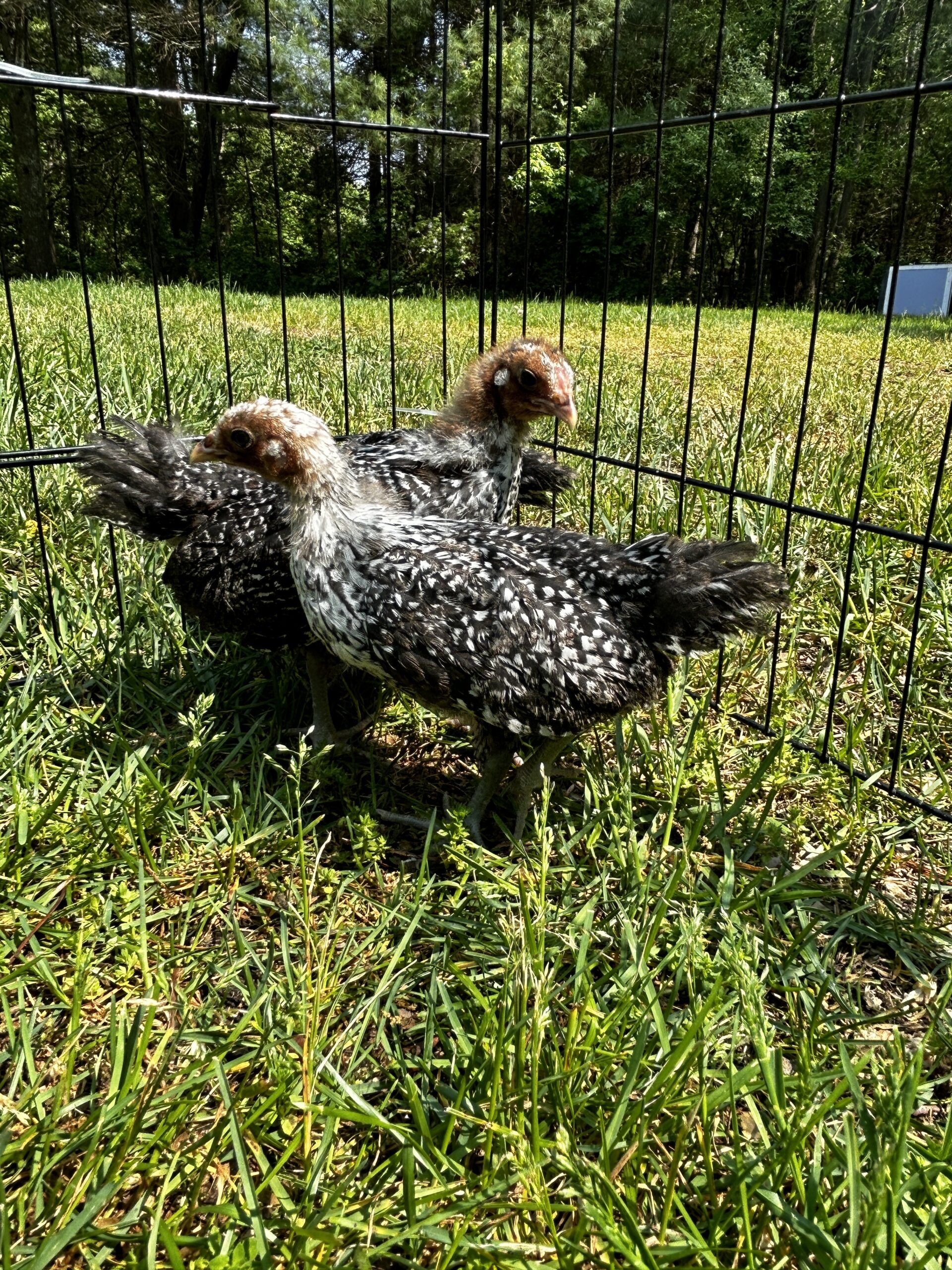
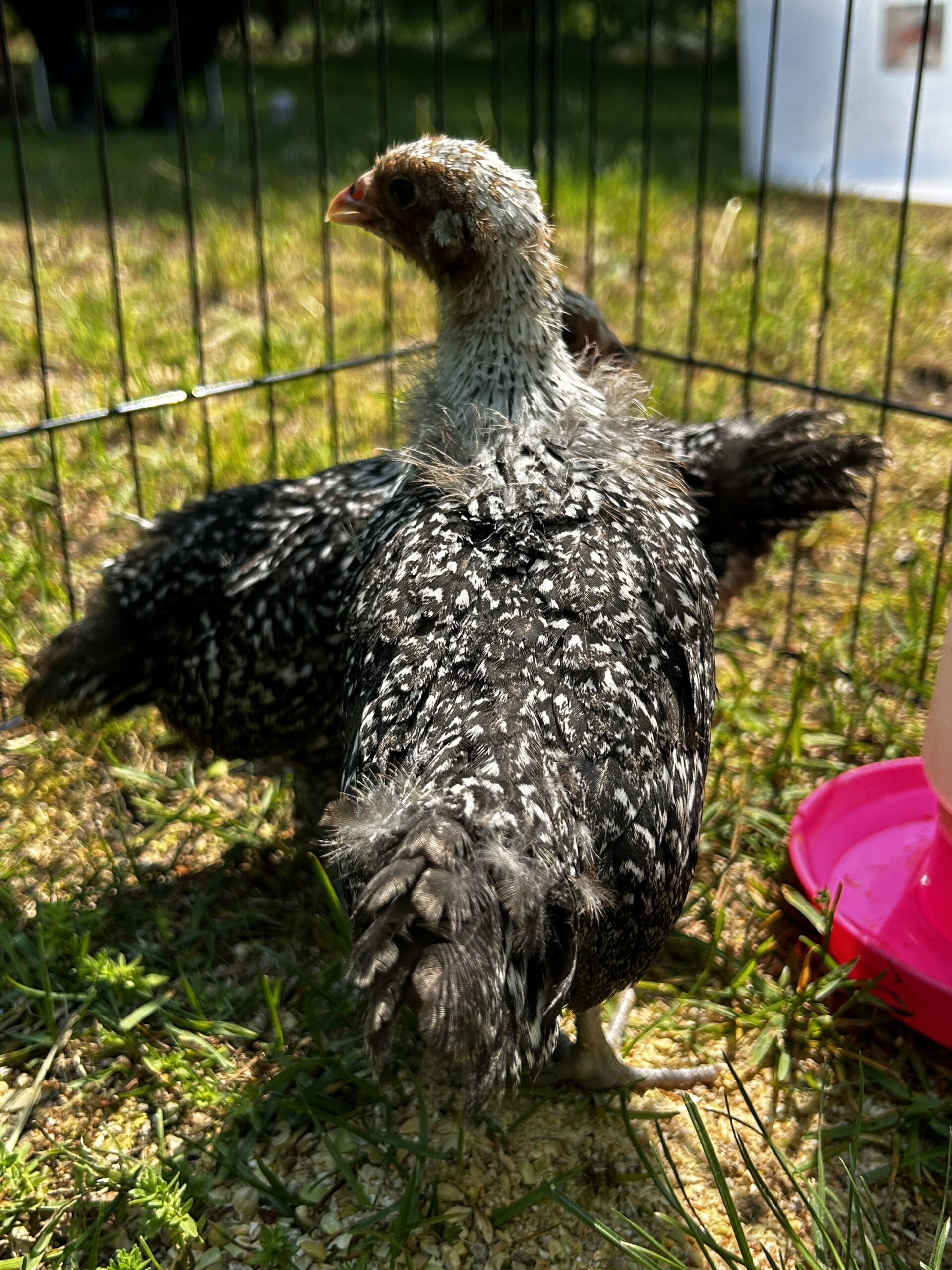
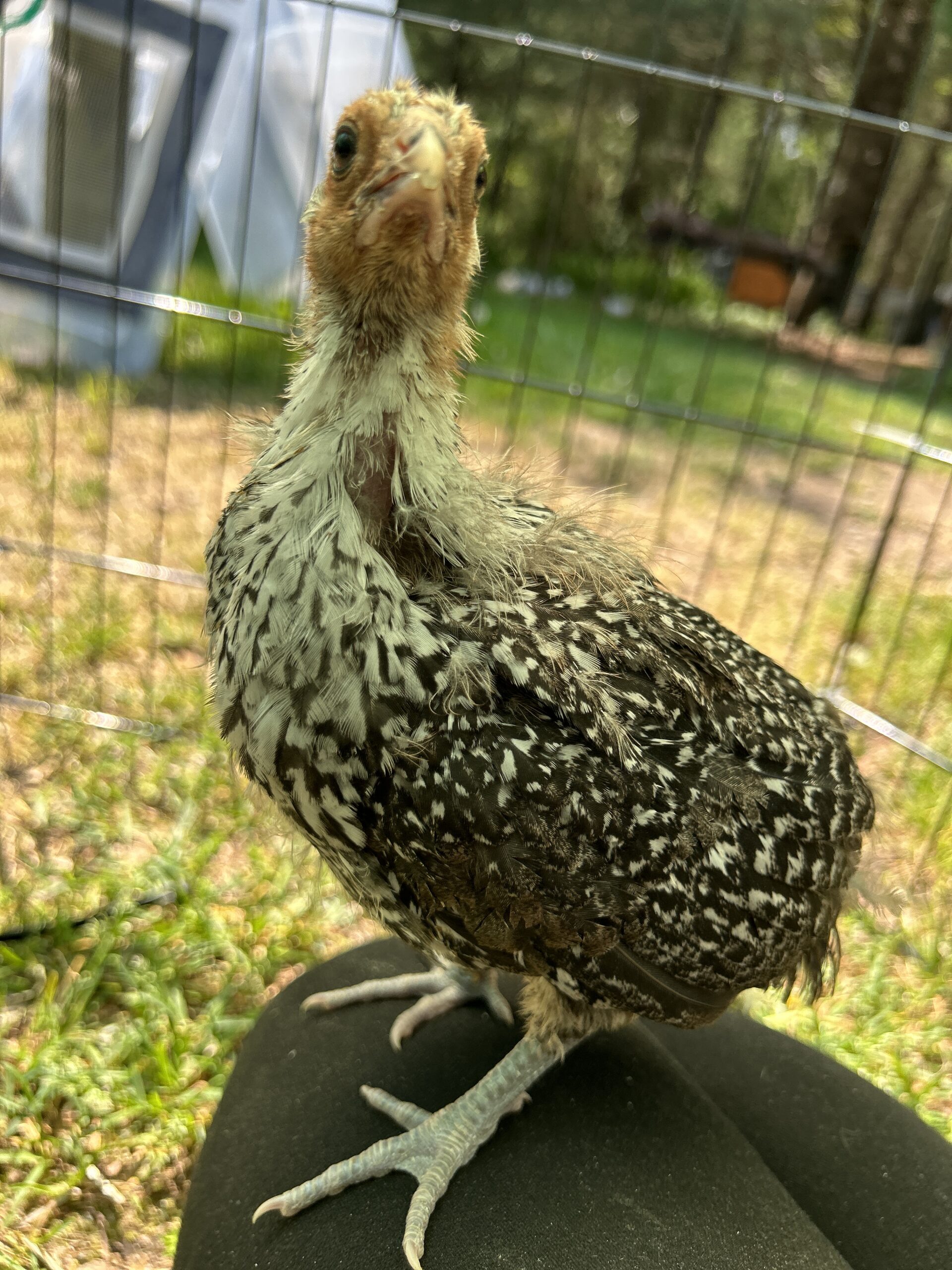
🍂✨ Harvesting Growth: Cultivating an October Mindset ✨🎃
Greetings, seekers of growth and pumpkin-spiced wisdom! Let's unravel the magic of October and how its essence aligns with cultivating a fruitful mindset. 🌾🍁
October, a month of transition, of leaves changing hues, and a gentle nudge towards winter. Just like the changing seasons, our mindset can adapt, evolve, and bear fruit. 🌳💫
Here's how the spirit of October mirrors the facets of mindset:
🍂 Embrace Change: Just as trees gracefully shed their leaves, let's shed old beliefs and embrace change in our mindset. Change is a beautiful part of growth.
🎃 Celebrate Individuality: Just like each pumpkin is unique, celebrate your individuality within your mindset. Embrace your quirks and strengths.
🌙 Balance and Harmony: October embodies the balance between warmth and coolness. Strive for a balanced mindset—harmonizing your goals, aspirations, and well-being.
🍎 Harvest Your Efforts: October is the harvest season. Similarly, it's crucial to recognize and appreciate the fruits of our labor within our mindset. Celebrate your achievements, no matter how small.
🍁 Letting Go with Grace: Trees release old leaves, making way for new growth. Similarly, let's release negative thoughts and past regrets, allowing space for fresh perspectives and growth.
October is a reminder that change is a beautiful part of life, and within that change lies the potential for growth and abundance. 🌟🌰
Are you ready to harvest a mindset that's ripe with possibilities and ready for the crisp adventures of life? 🌾🍎
#OctoberMindset #HarvestingGrowth #EmbraceChange #FruitfulMindset 🍂🌟
🥚✨ Egg-citing Mindset: The Shell of Potential ✨🌱
Greetings, curious minds! Today, let's embark on an egg-ceptional journey and crack open the wisdom an egg holds about the power of mindset. 🐣🌈
An egg—a small marvel that embodies potential, growth, and transformation. In many ways, our mindset is like the protective shell of this egg, encapsulating the potential to hatch greatness. 🚀💡
Here's how an egg reflects the essence of mindset:
🌱 Potential Within: Just like an egg holds a life within, our mindset holds the potential for growth, creativity, and success. It's all about nurturing and allowing that potential to flourish.
🐣 Breaking Boundaries: A chick breaks through the confines of its shell to embrace the world. Similarly, a resilient mindset propels us to break through our limitations, revealing our true capabilities.
💪 Inner Strength: The eggshell might seem fragile, but it's remarkably strong. Similarly, our mindset may face challenges, but it possesses a resilient core that can endure and overcome.
🌟 Crack Open Positivity: As we crack open an egg, let's crack open negativity, doubts, and fears from our mindset. Infuse it with positivity, hope, and a can-do attitude.
🎉 The Joy of Unveiling: Hatching from an egg is a moment of joy and revelation. Similarly, every breakthrough in our mindset brings us joy and a deeper understanding of our potential.
Let's nurture our mindset like we would nurture an egg, understanding that within that delicate shell lies the immense potential to hatch our dreams. 🌠✨
Are you ready to crack open your mindset and witness the brilliance that lies within? 🌟🐥
#EggcitingMindset #BreakTheShell #UnleashPotential #CrackOpenPositivity 🐣🌿
